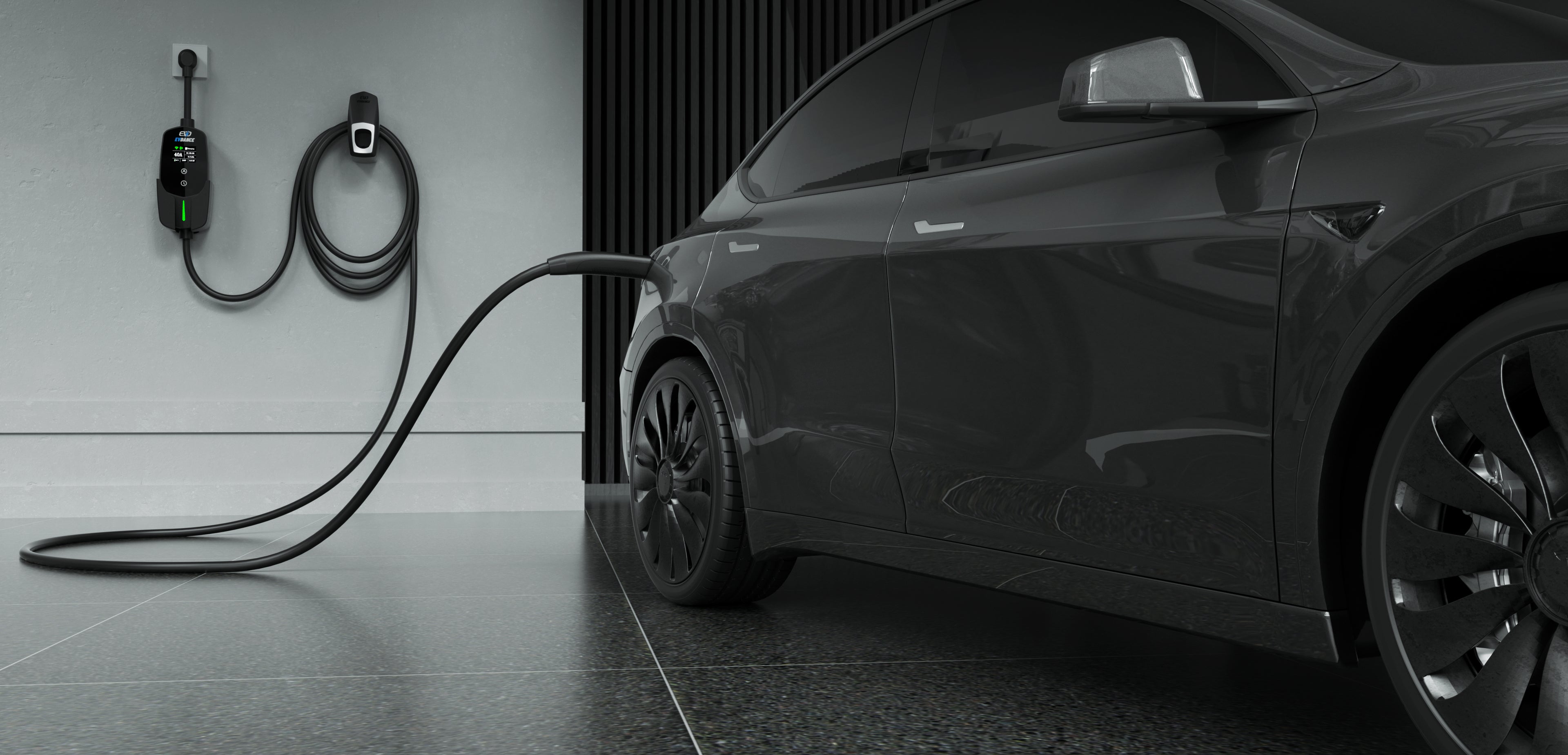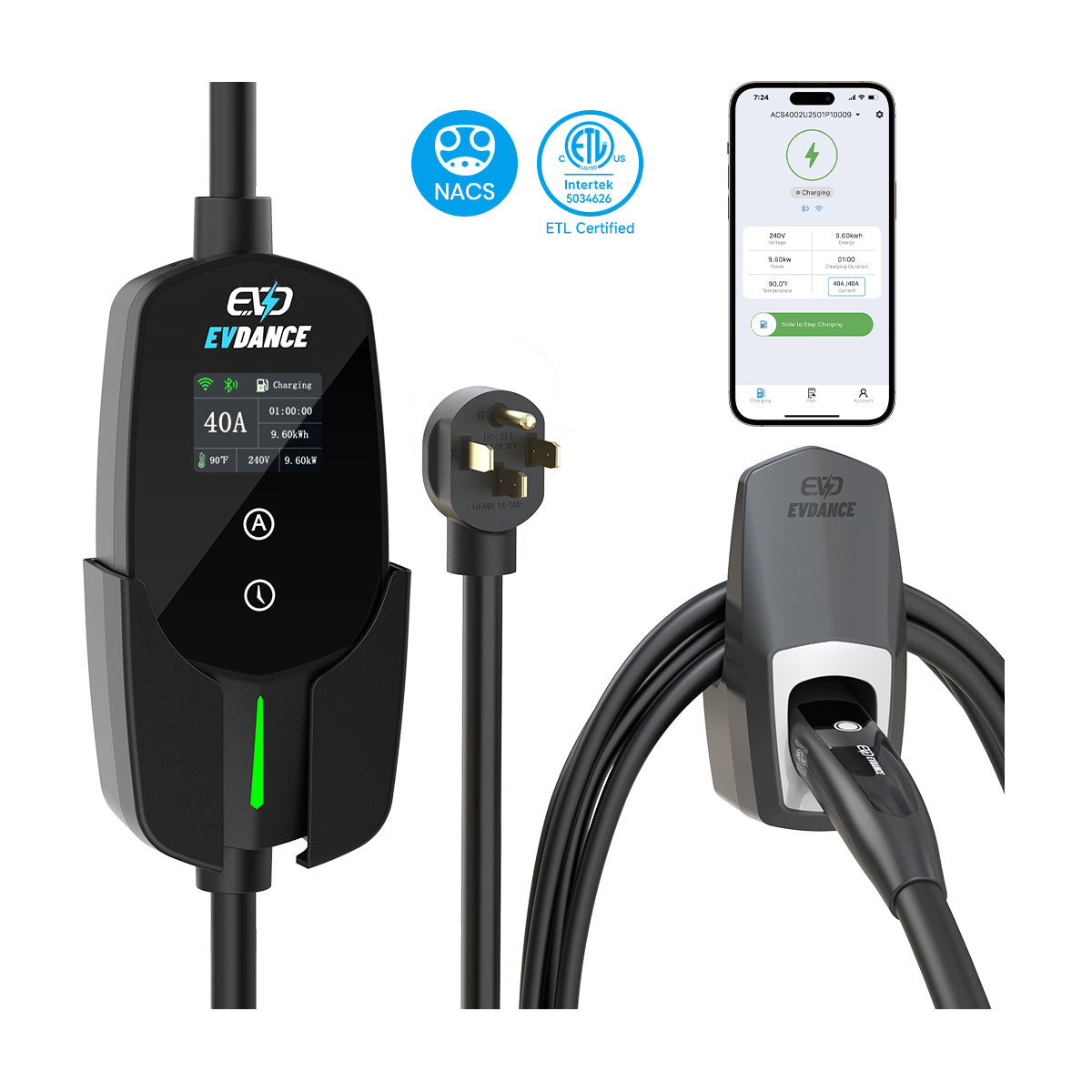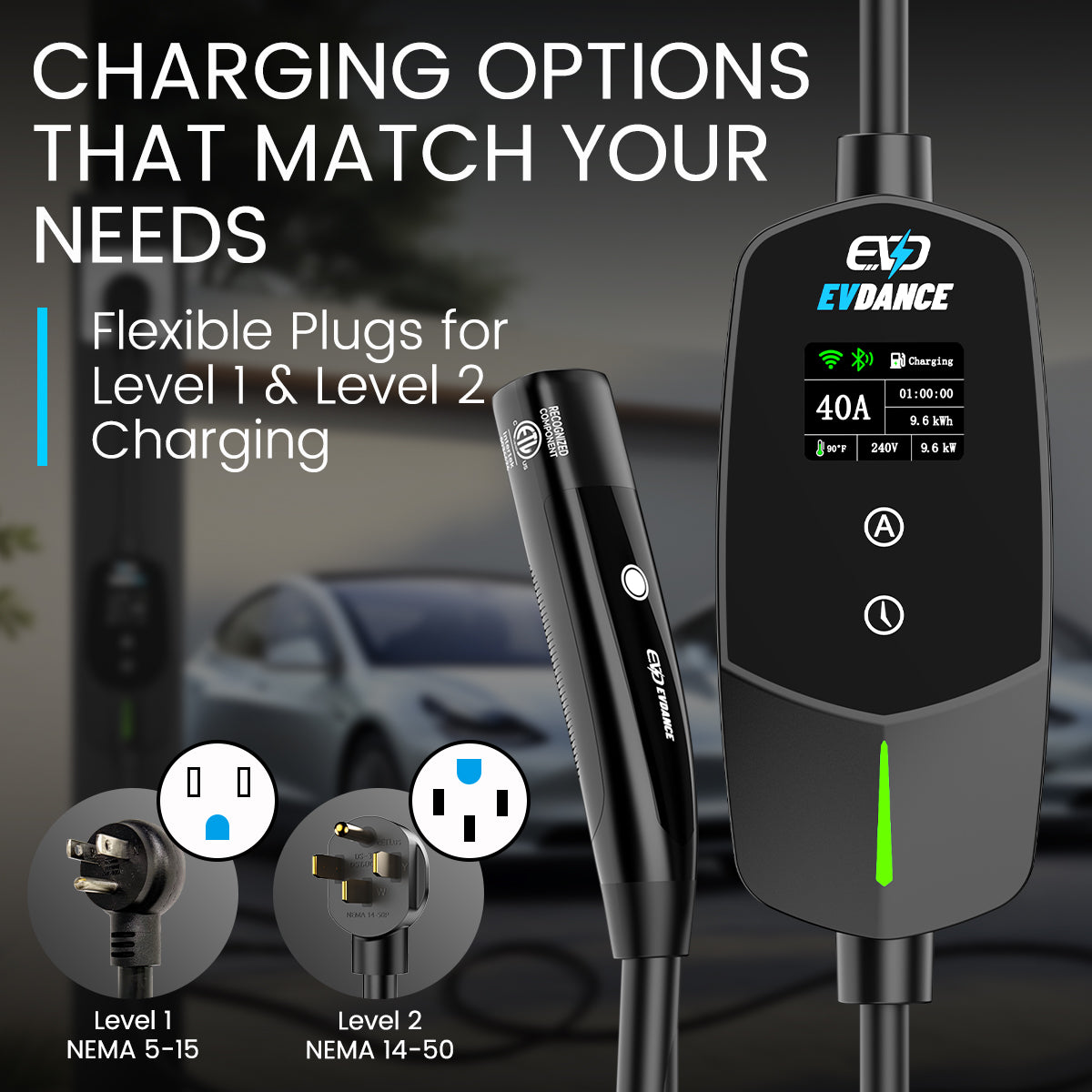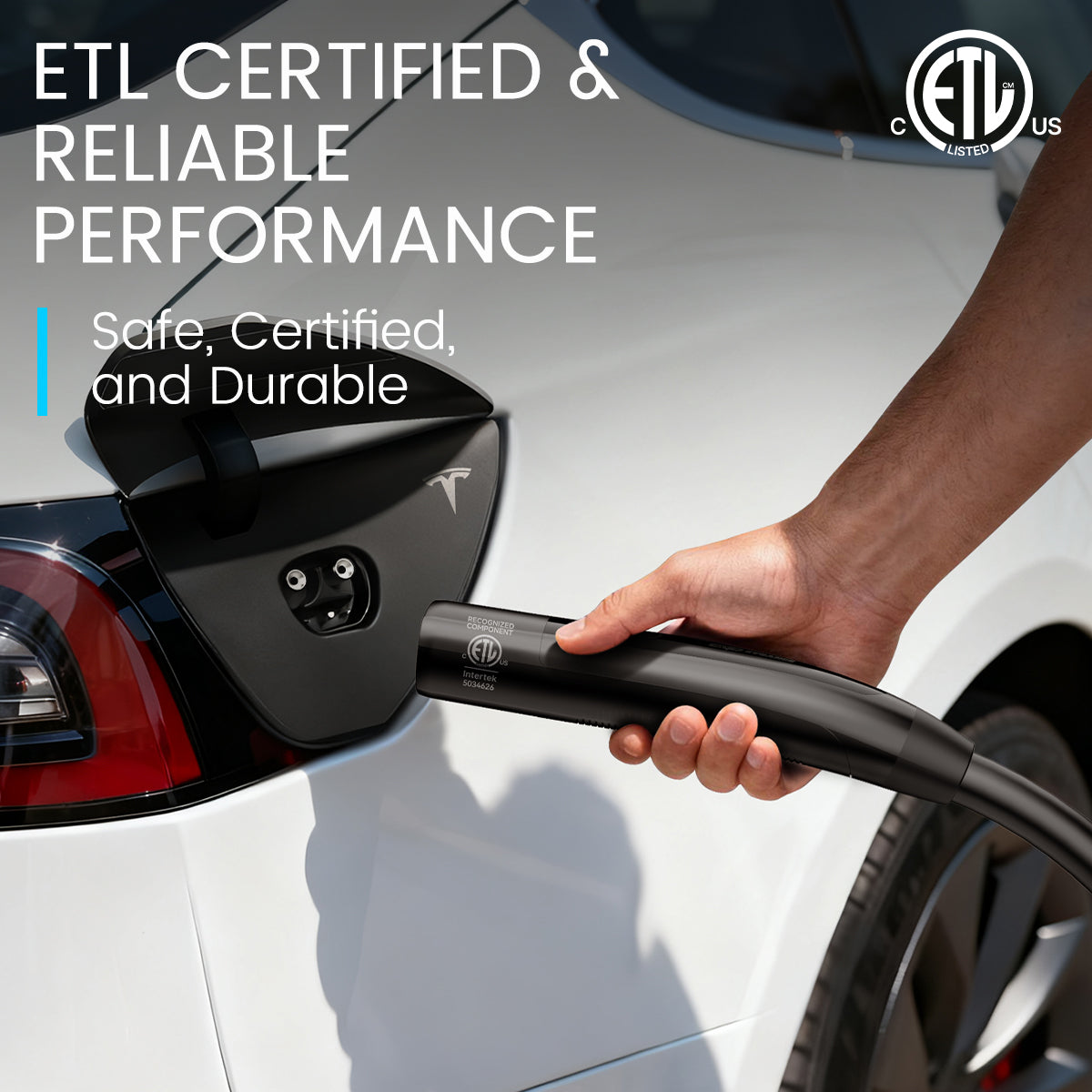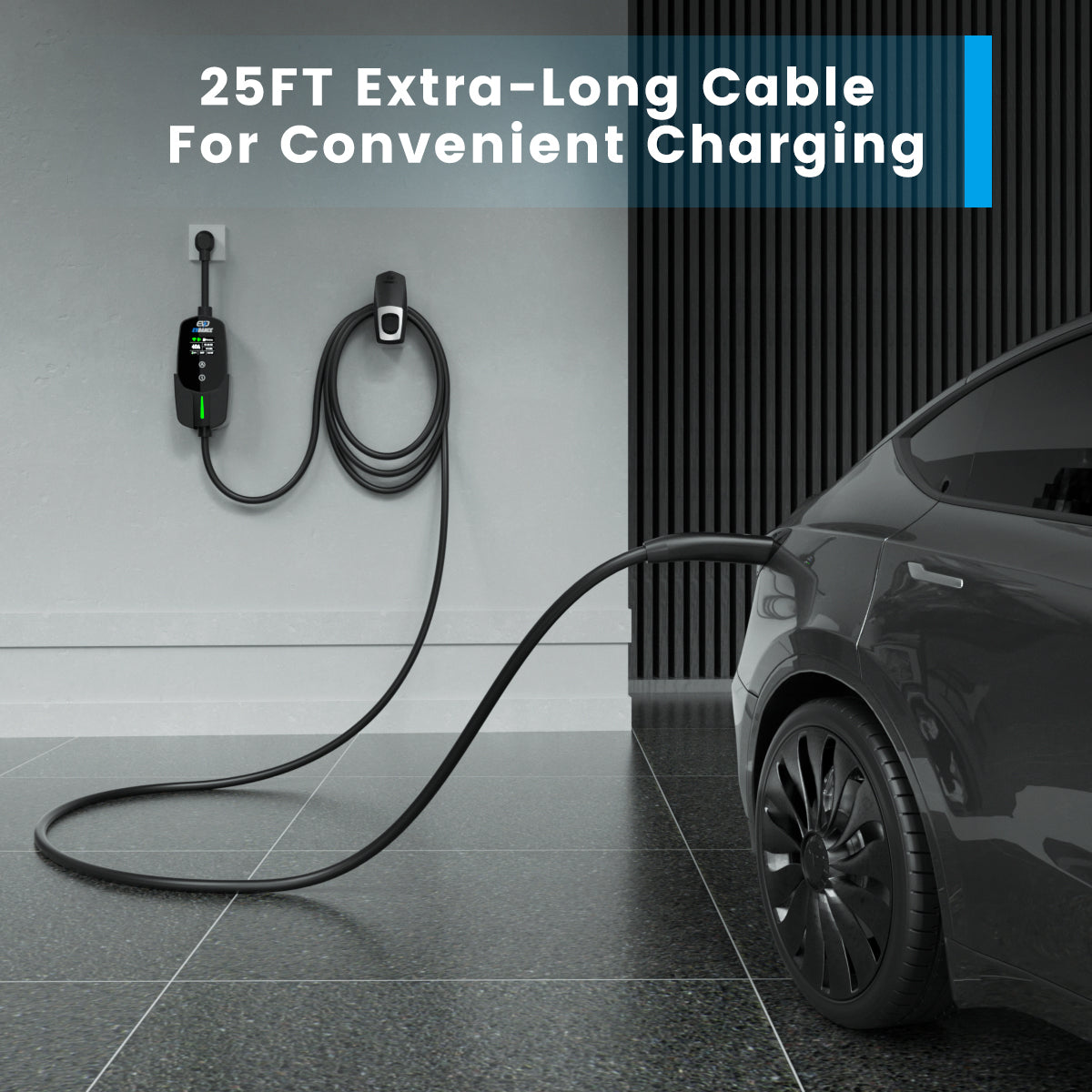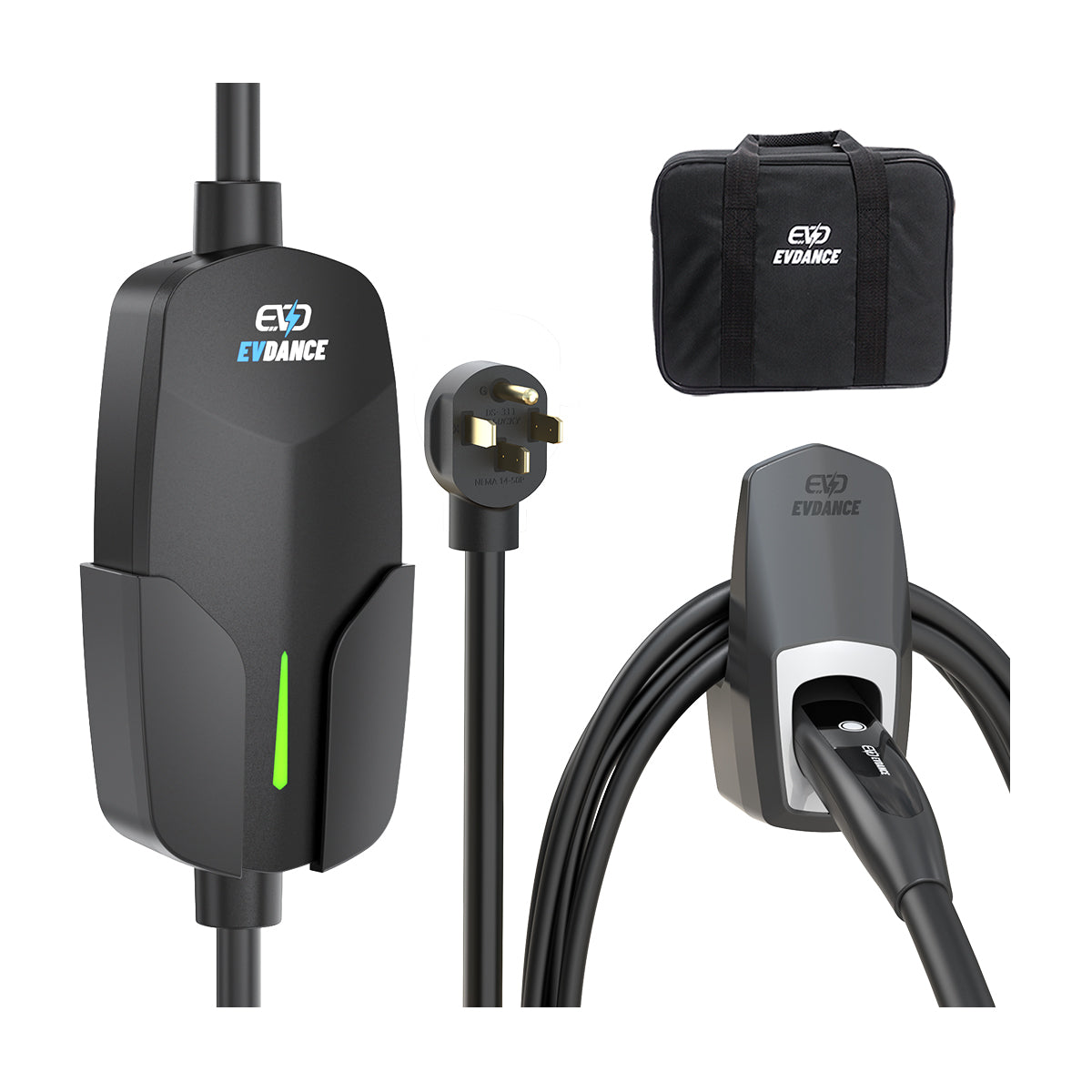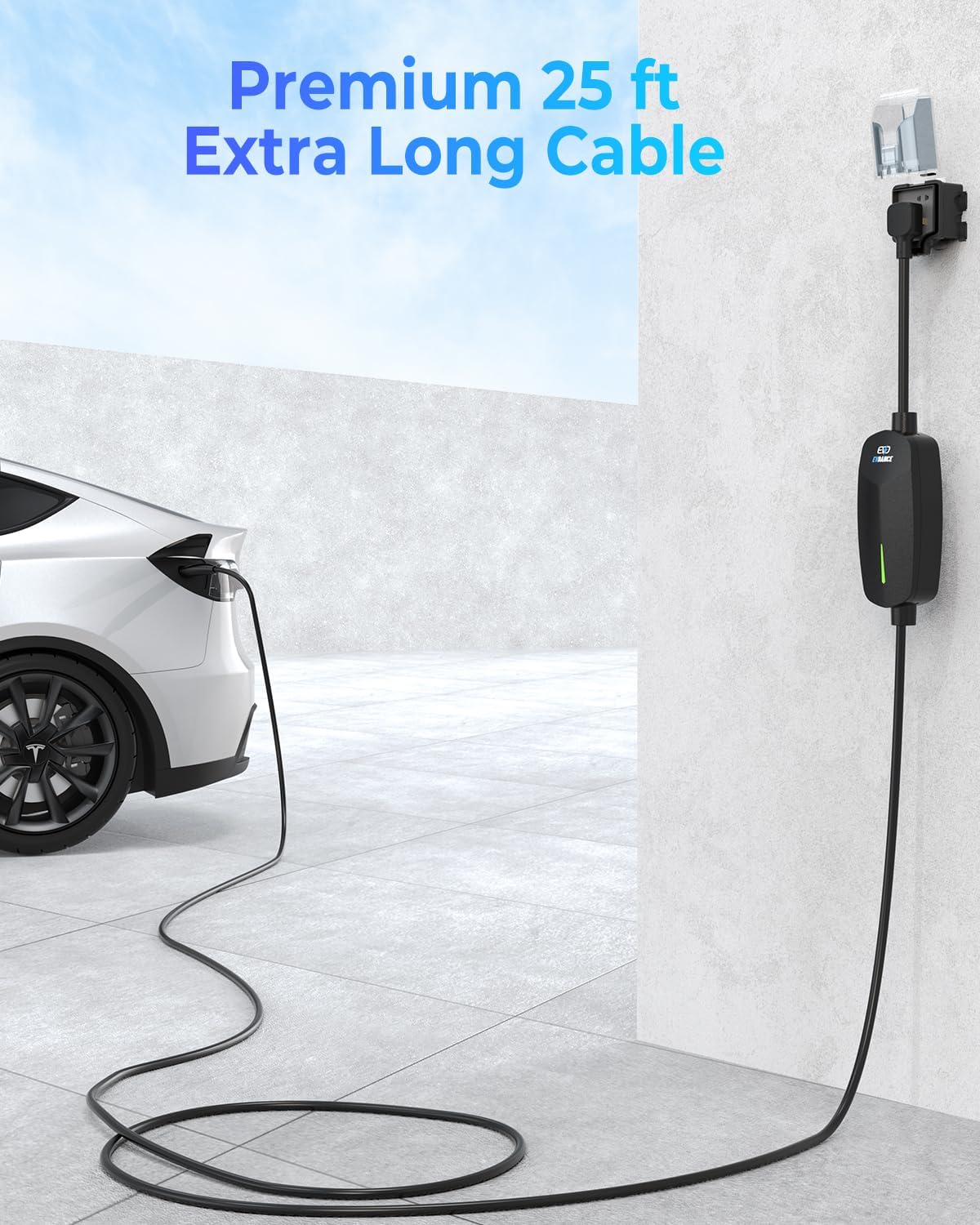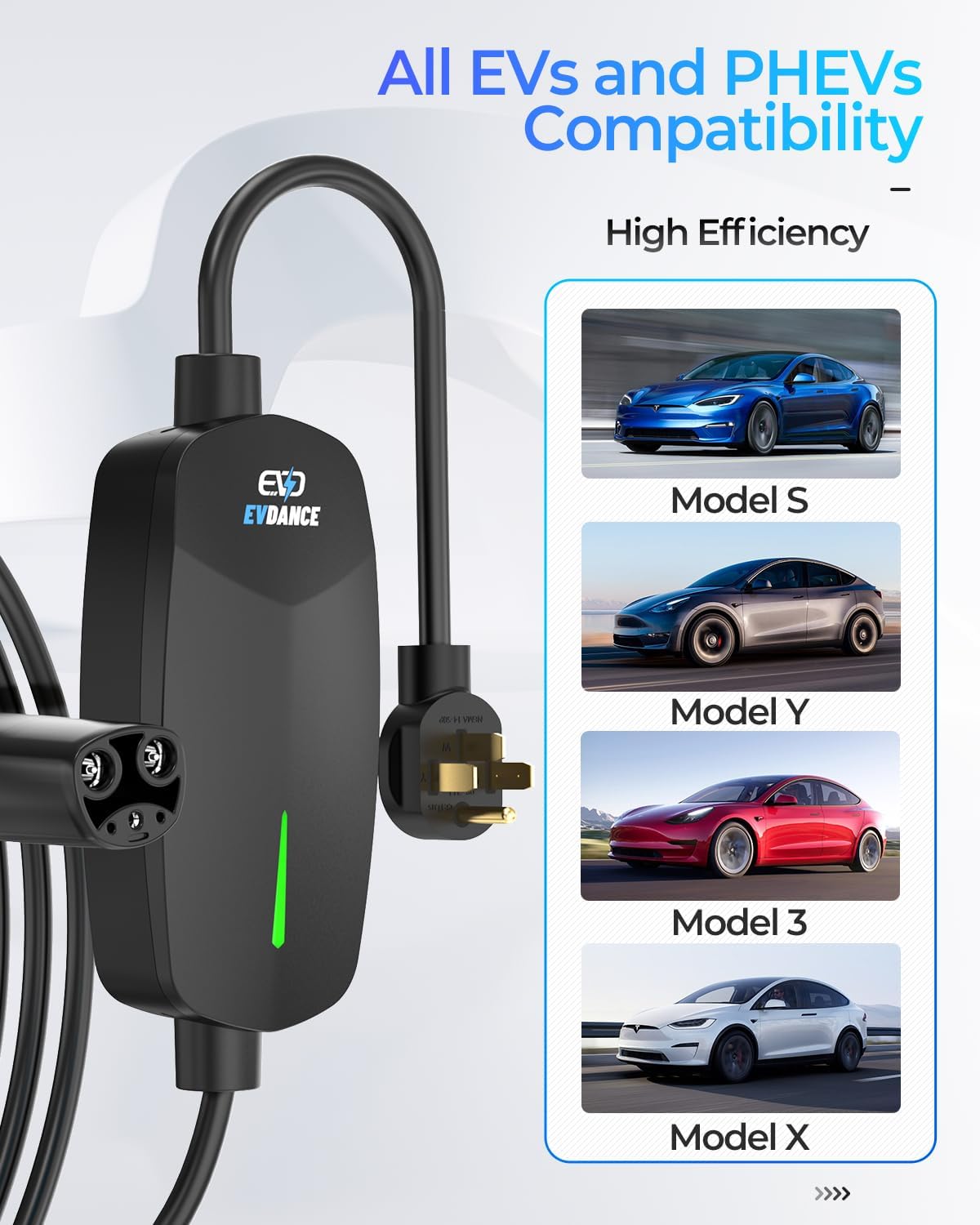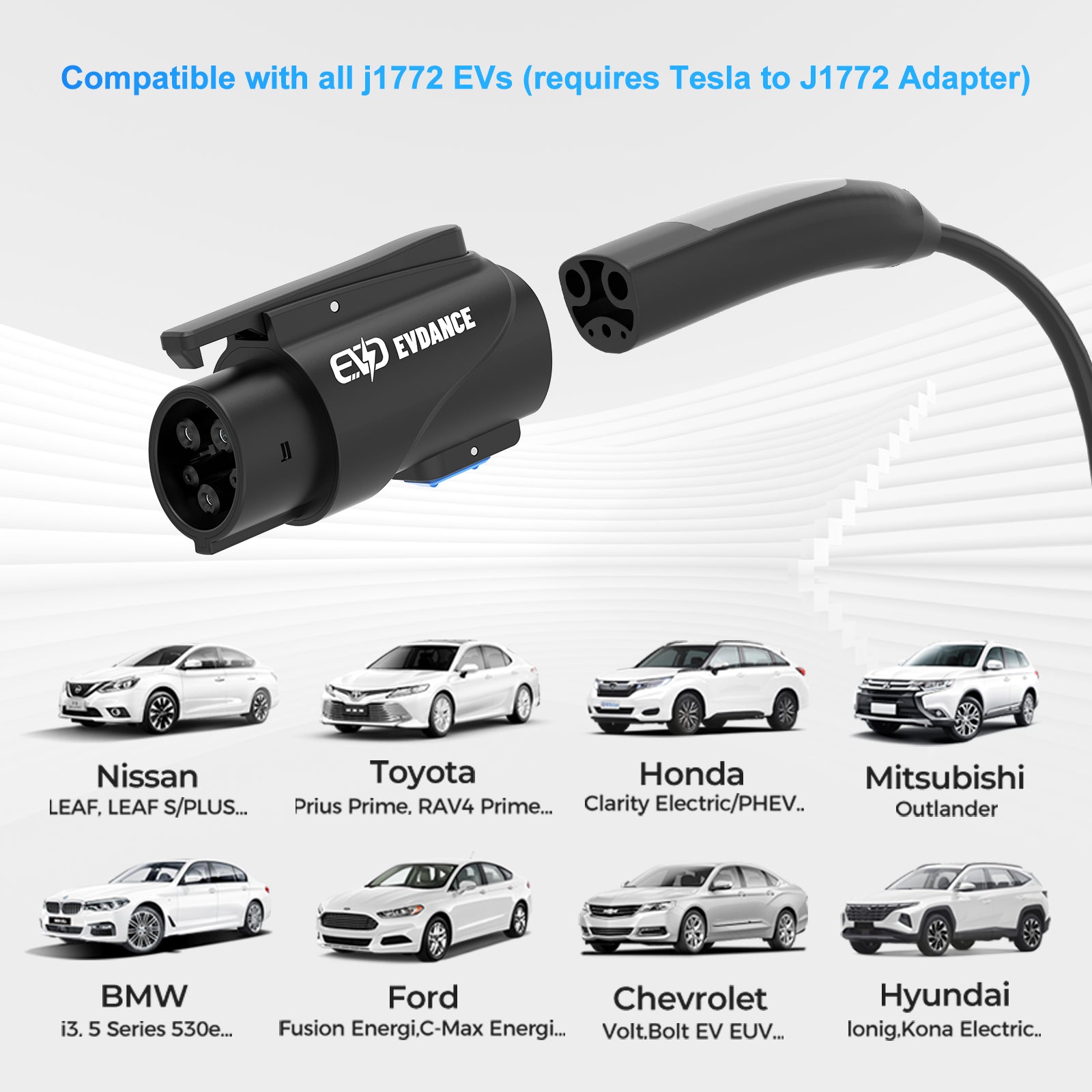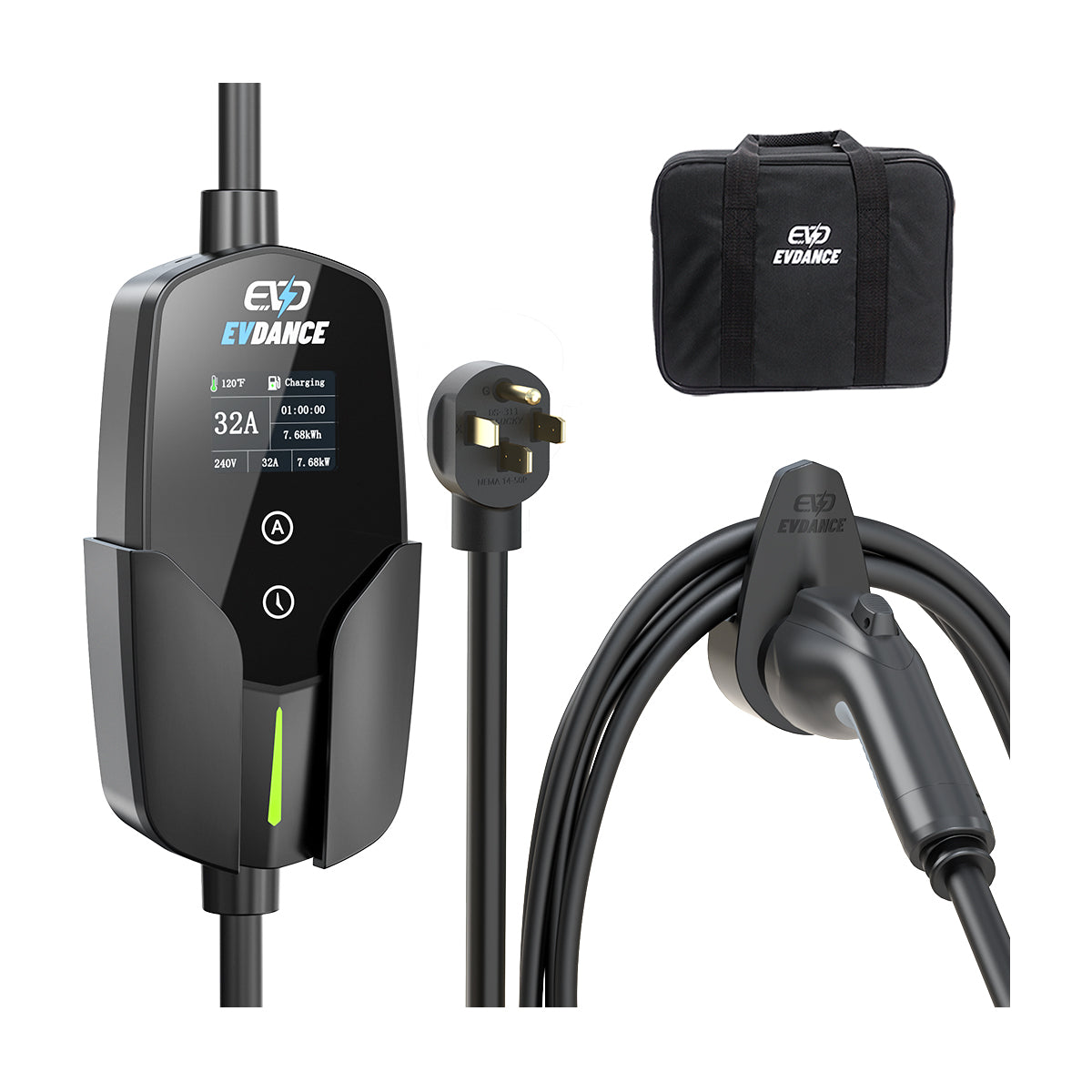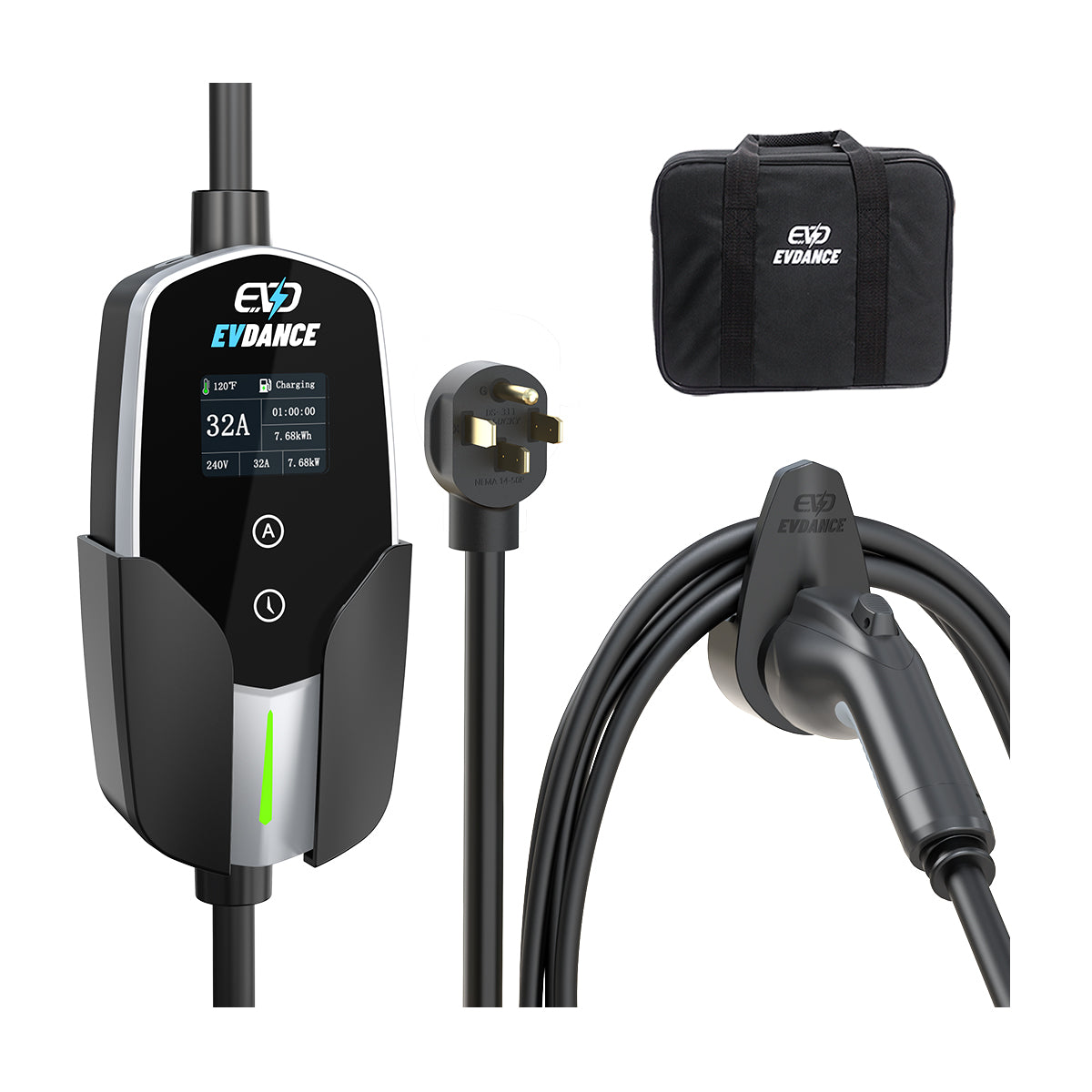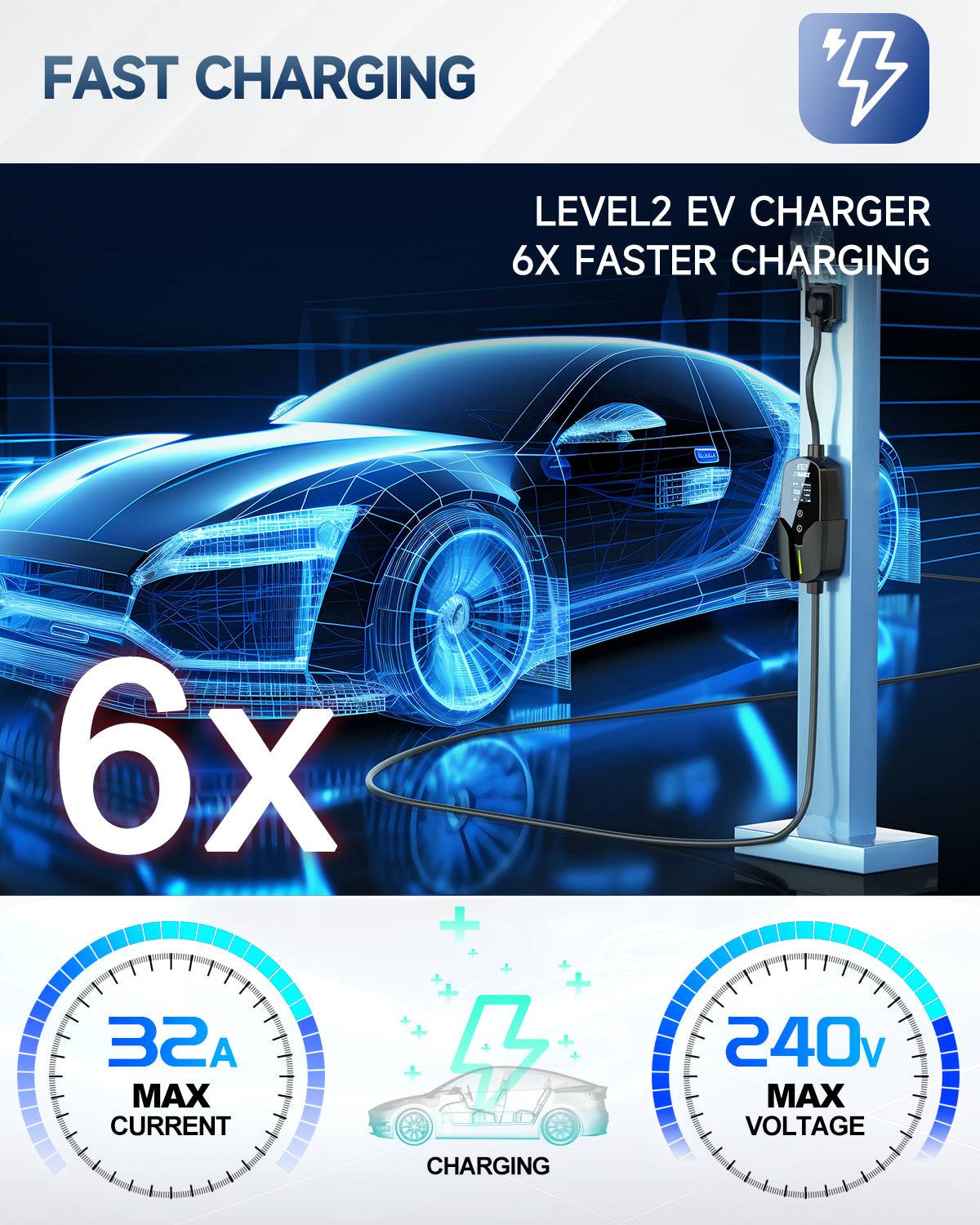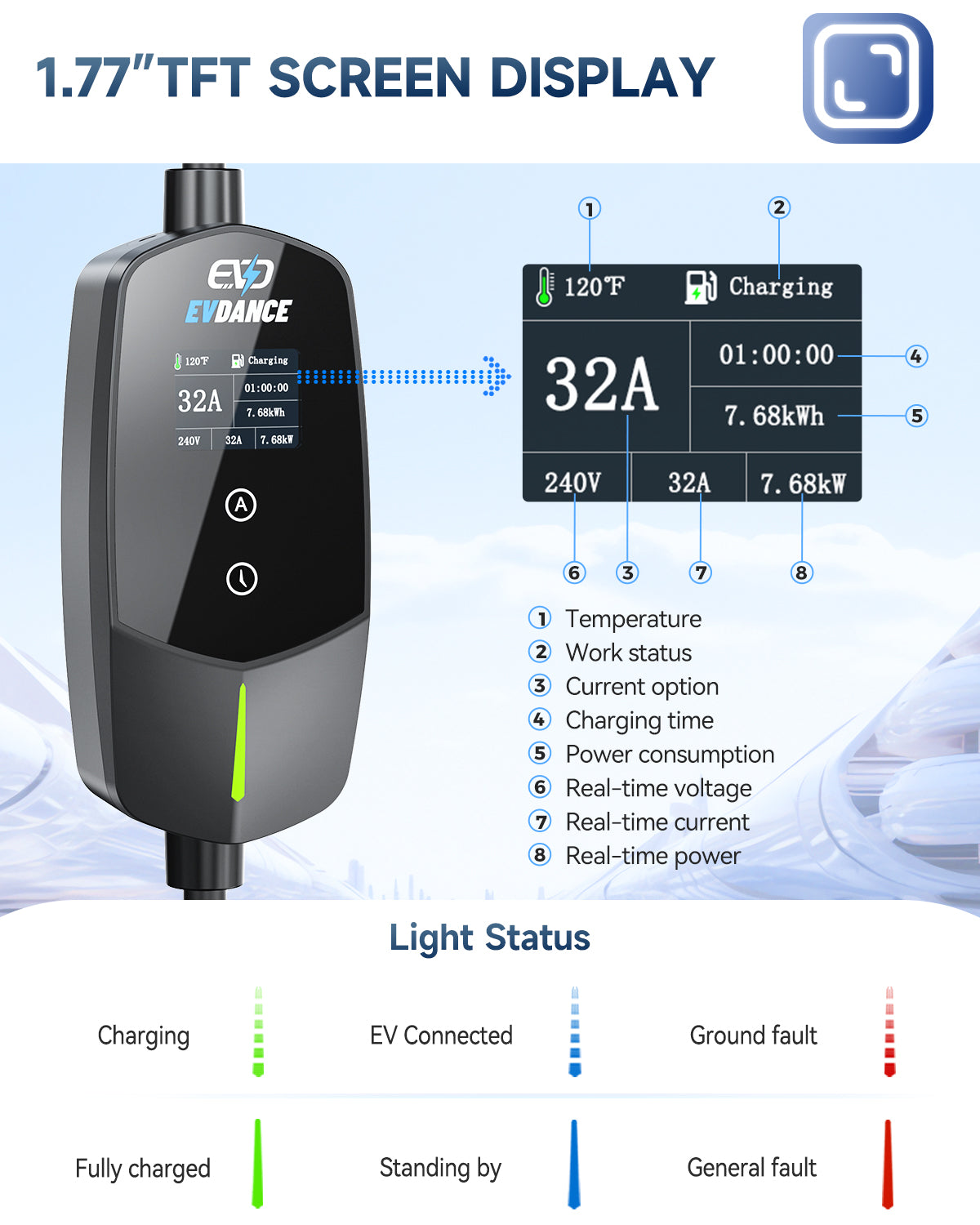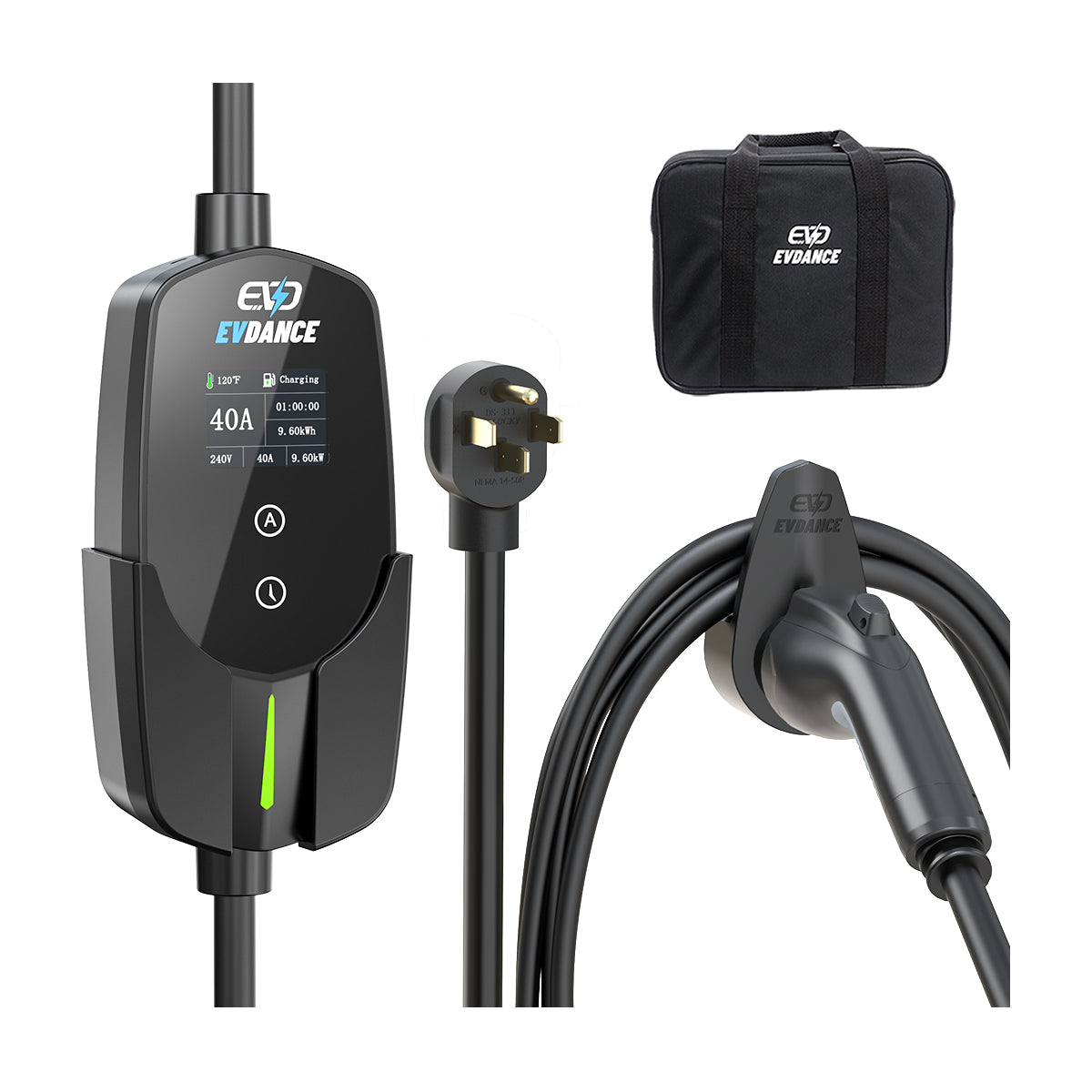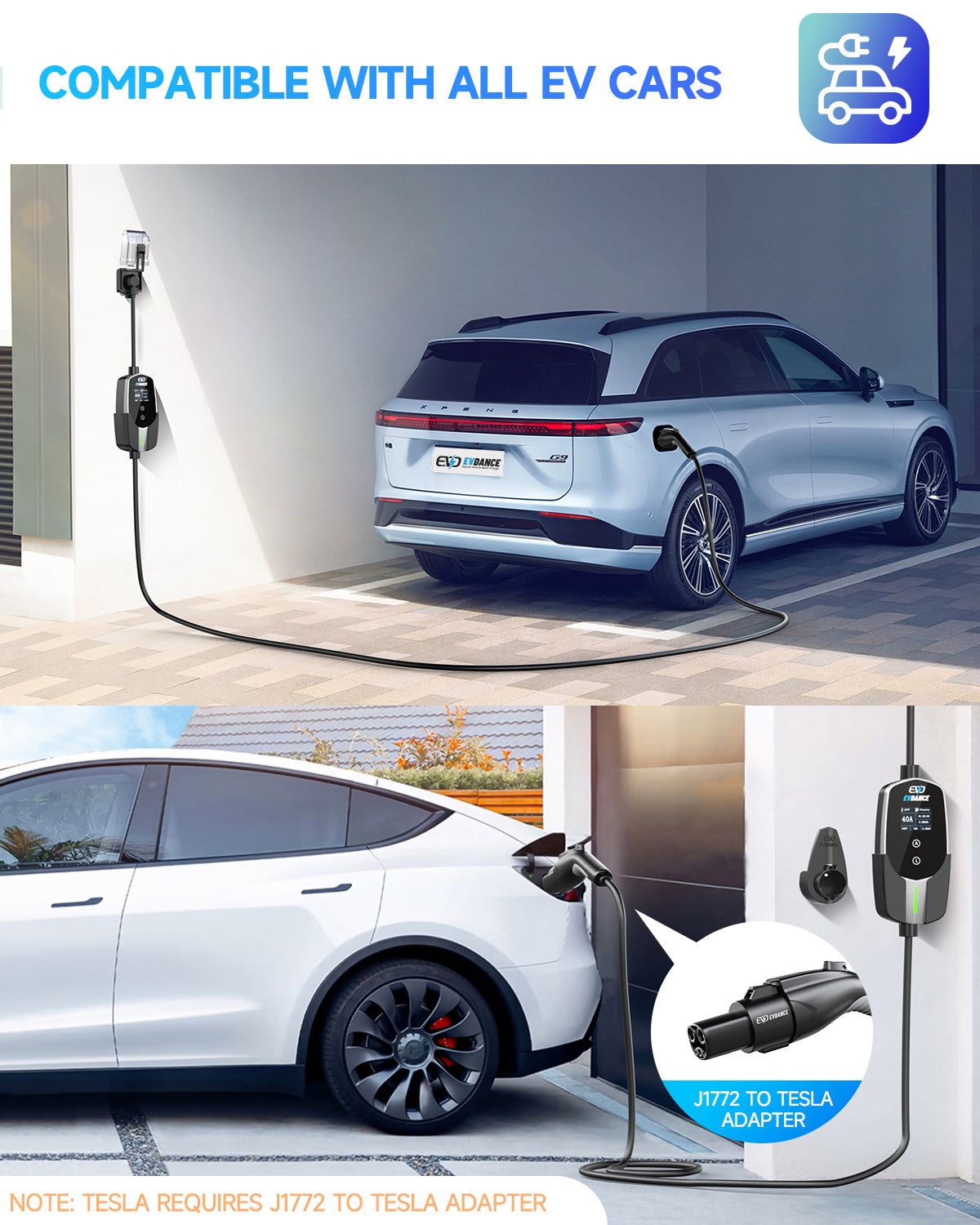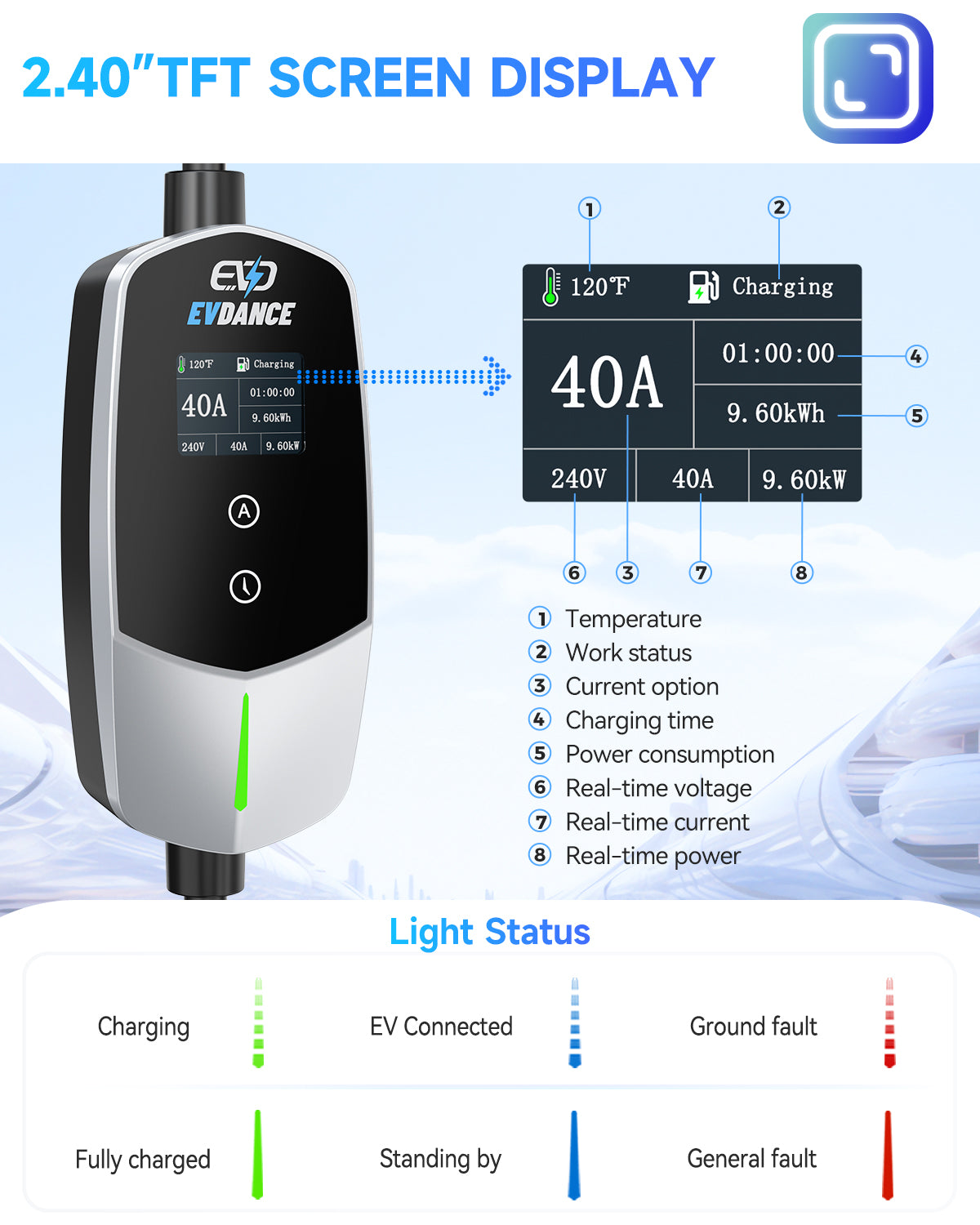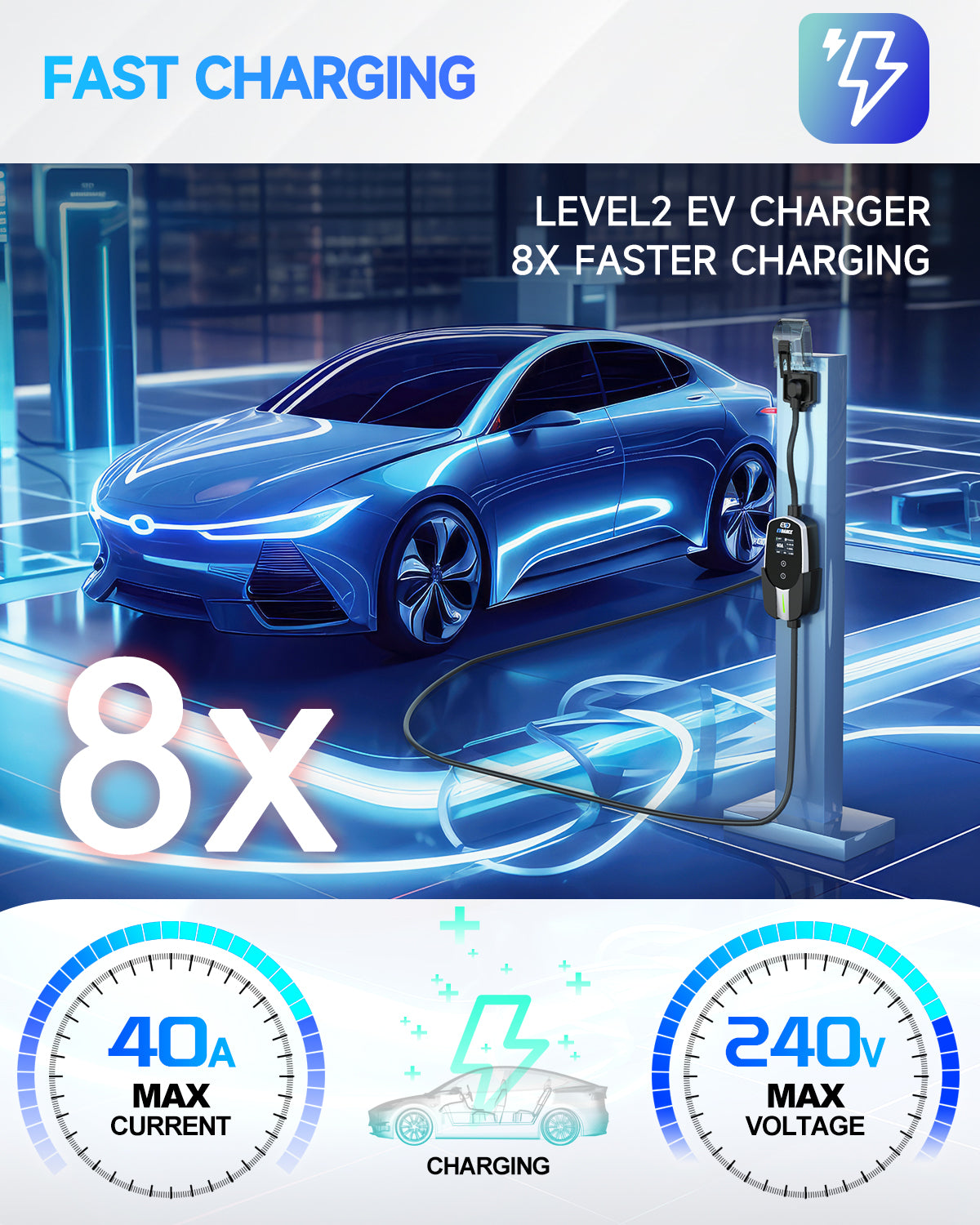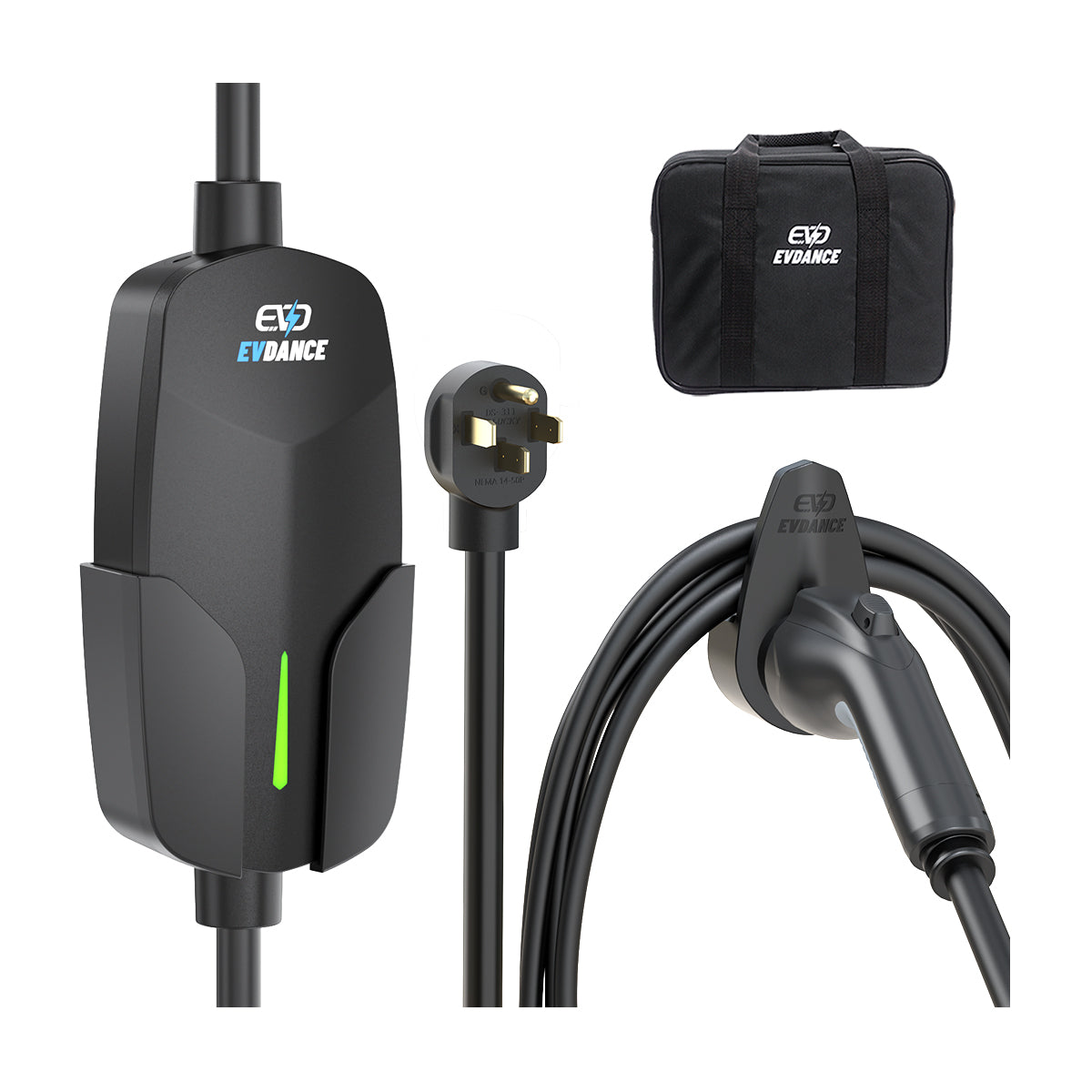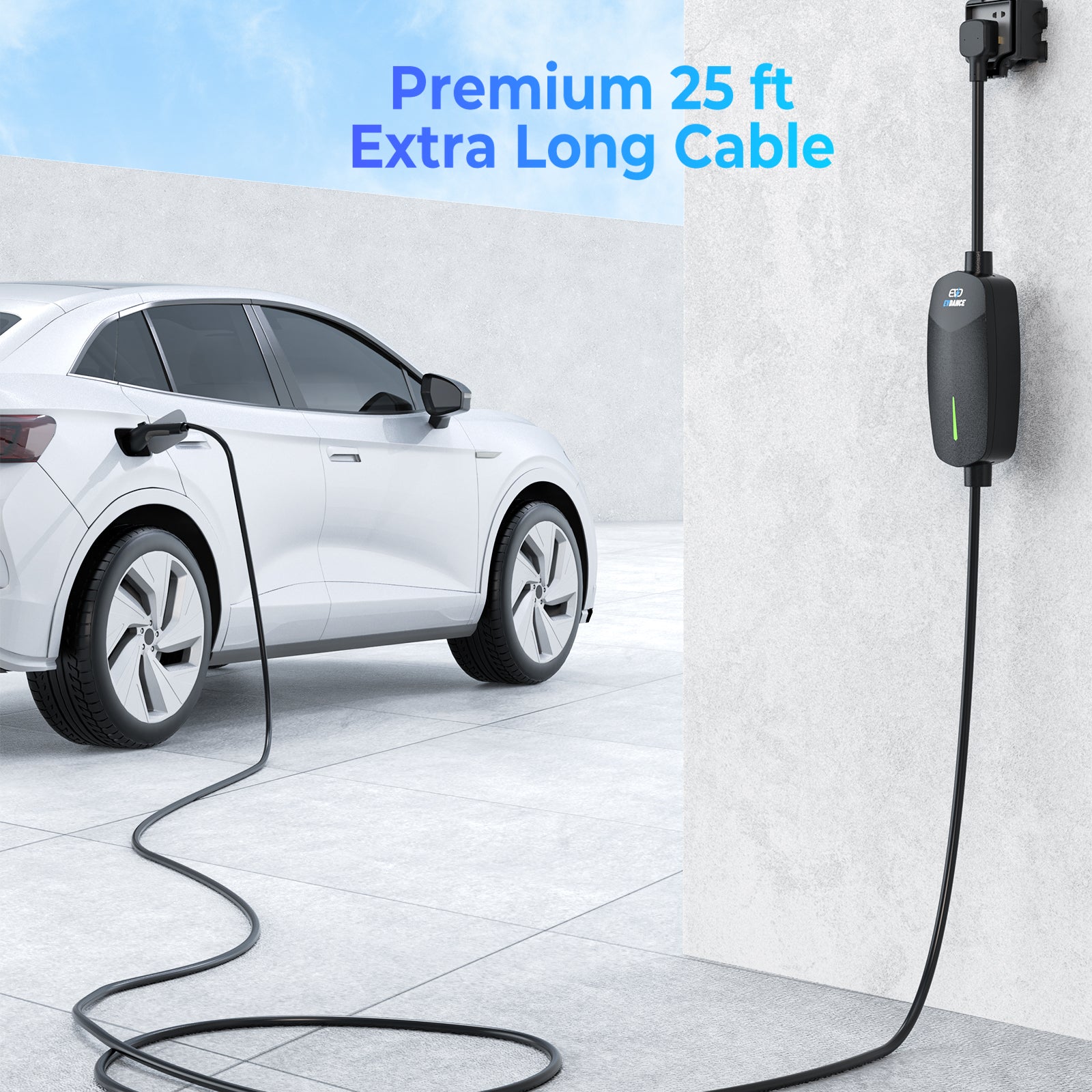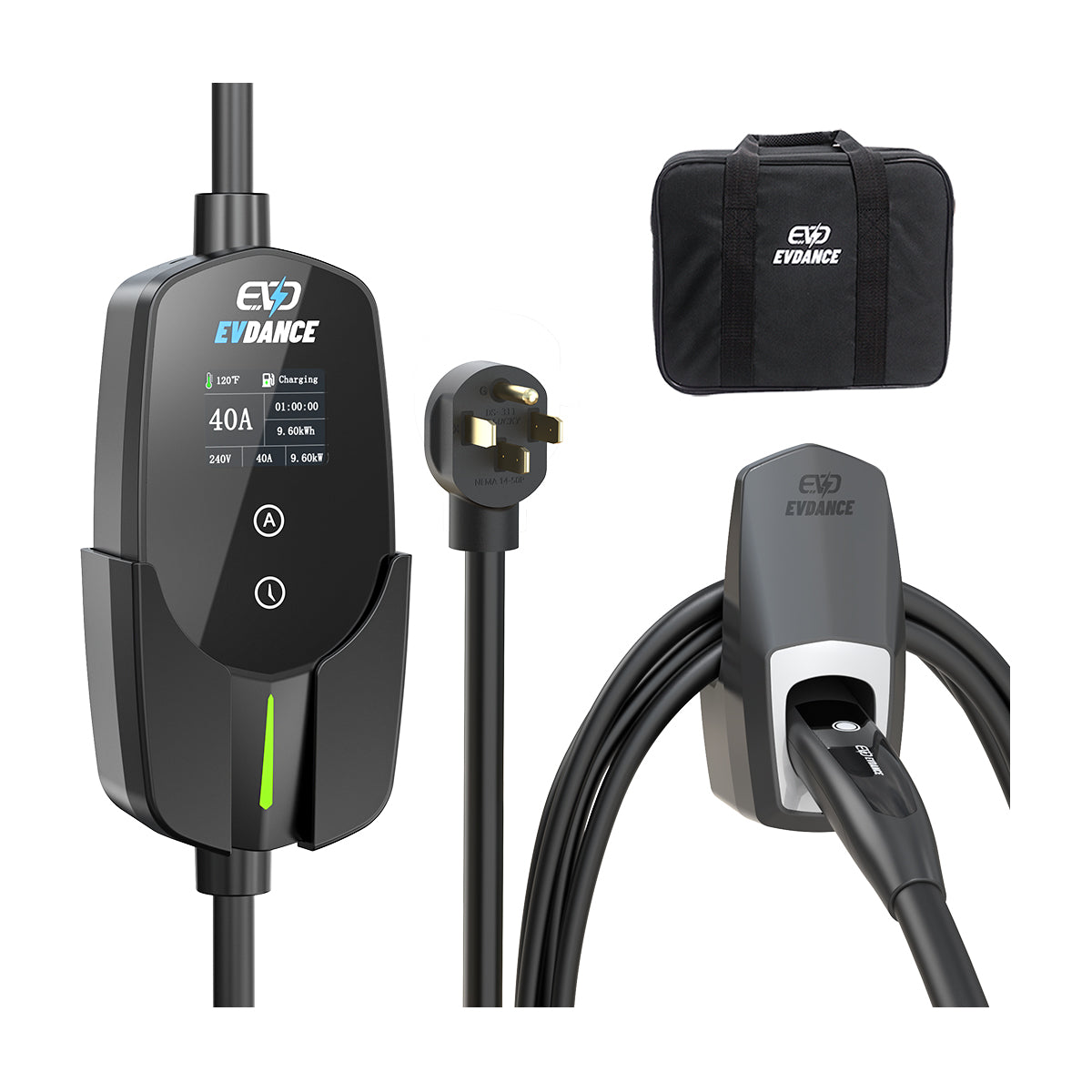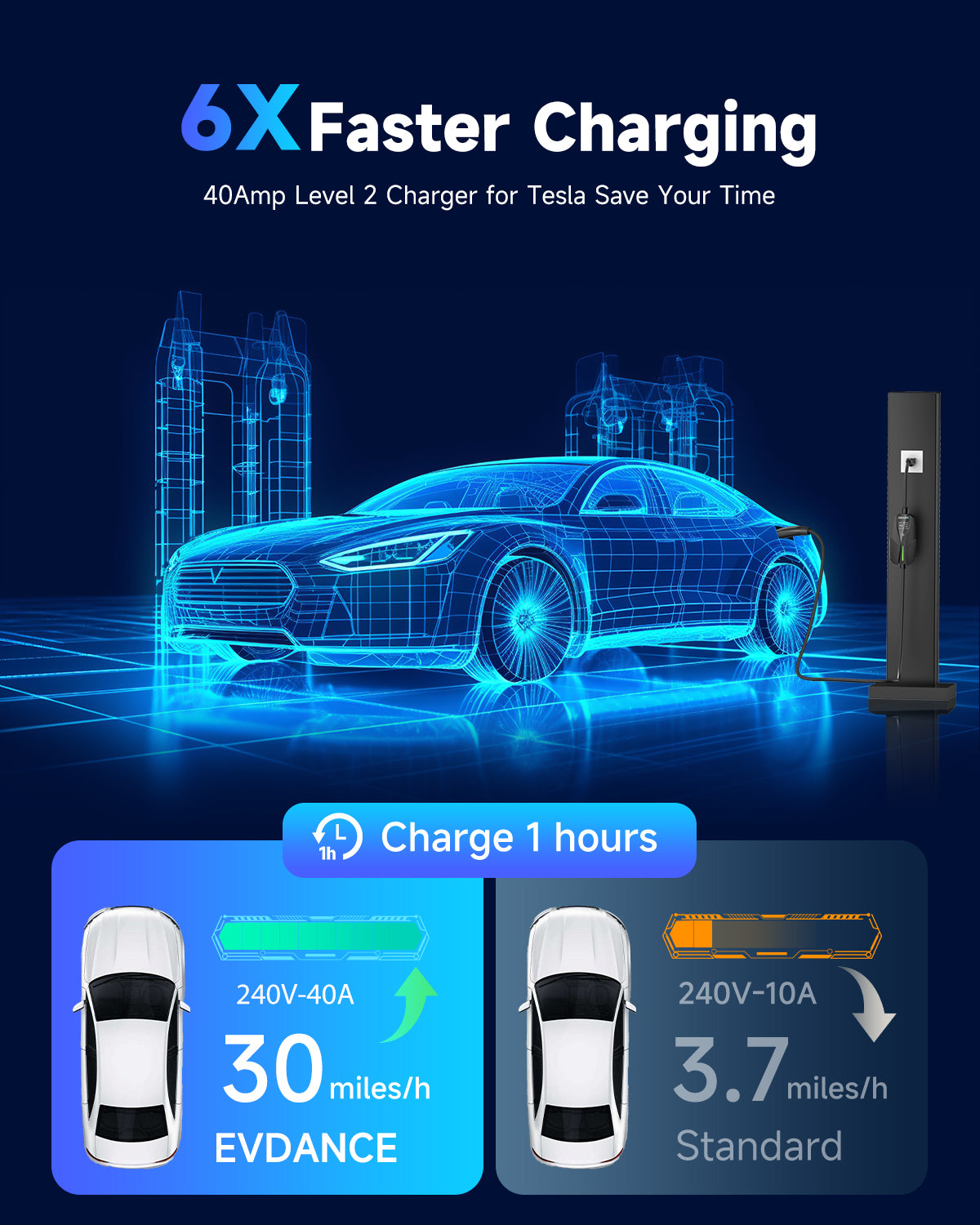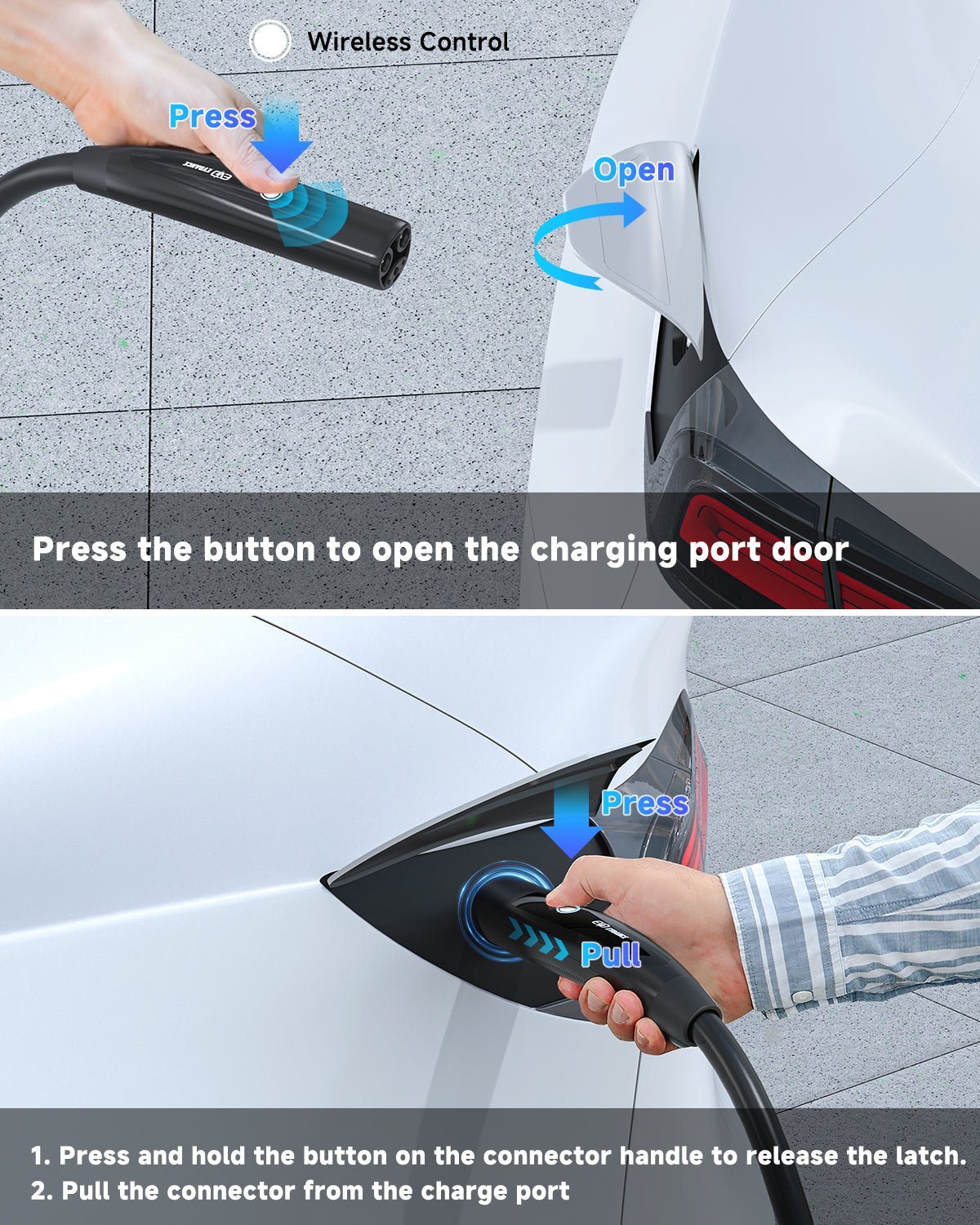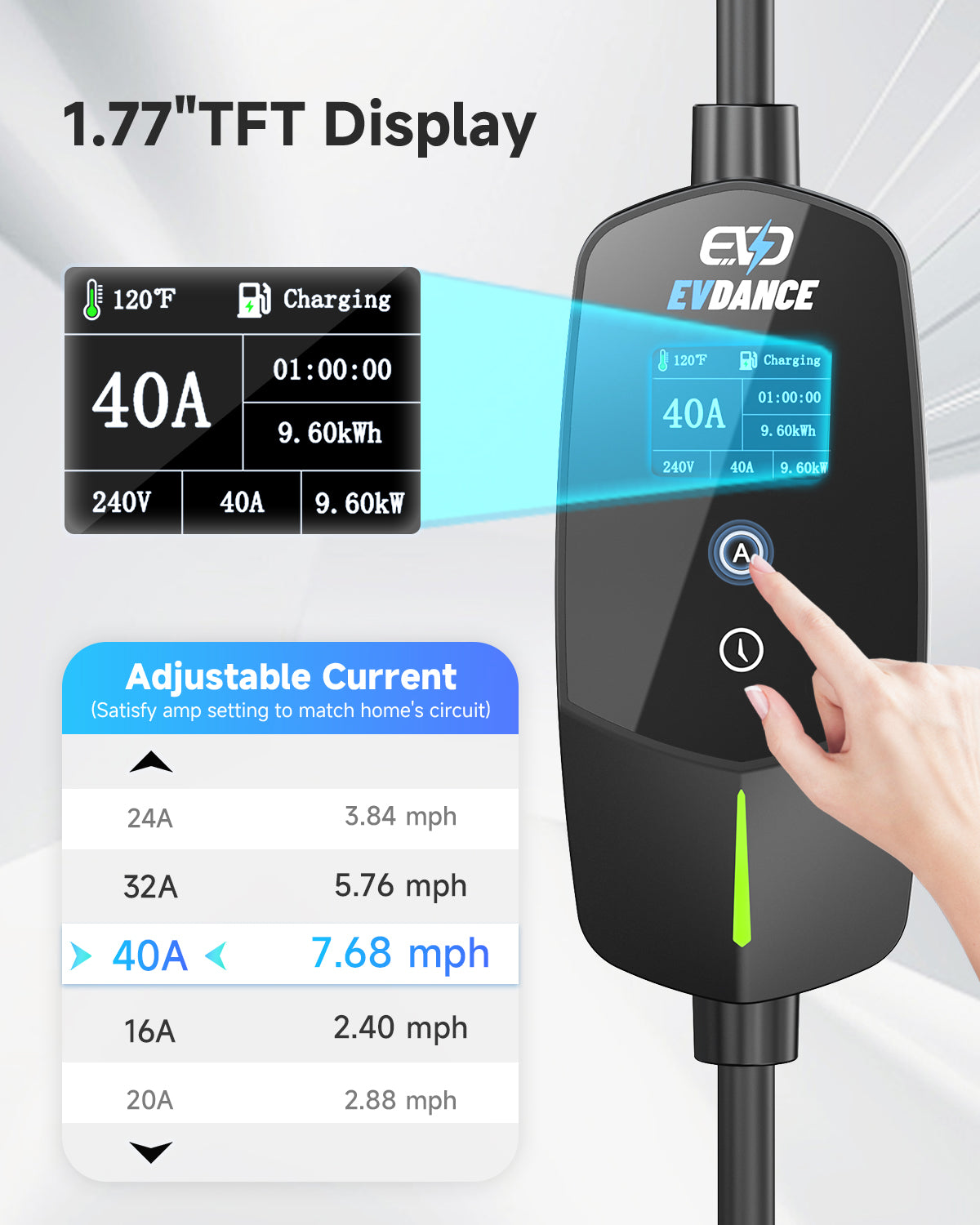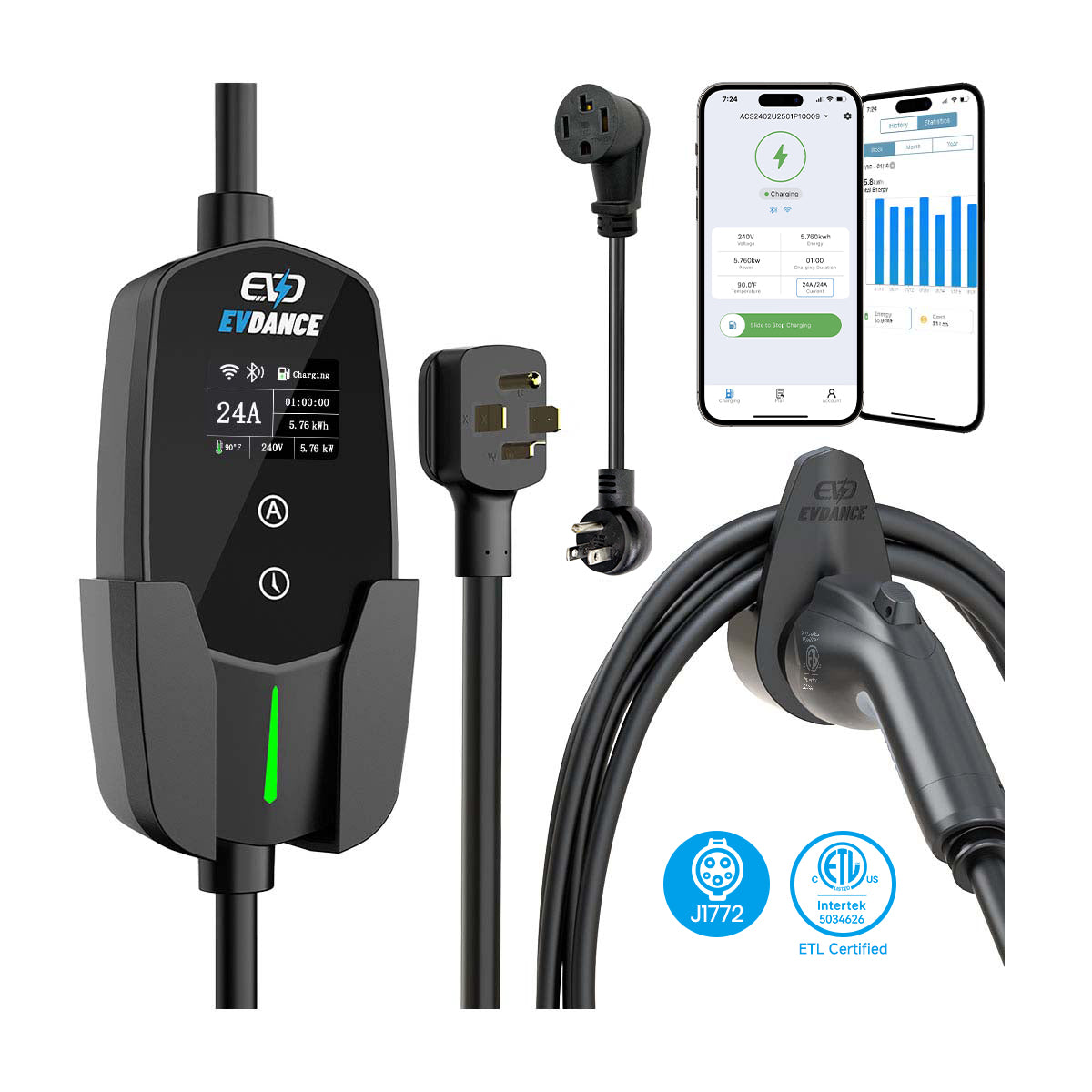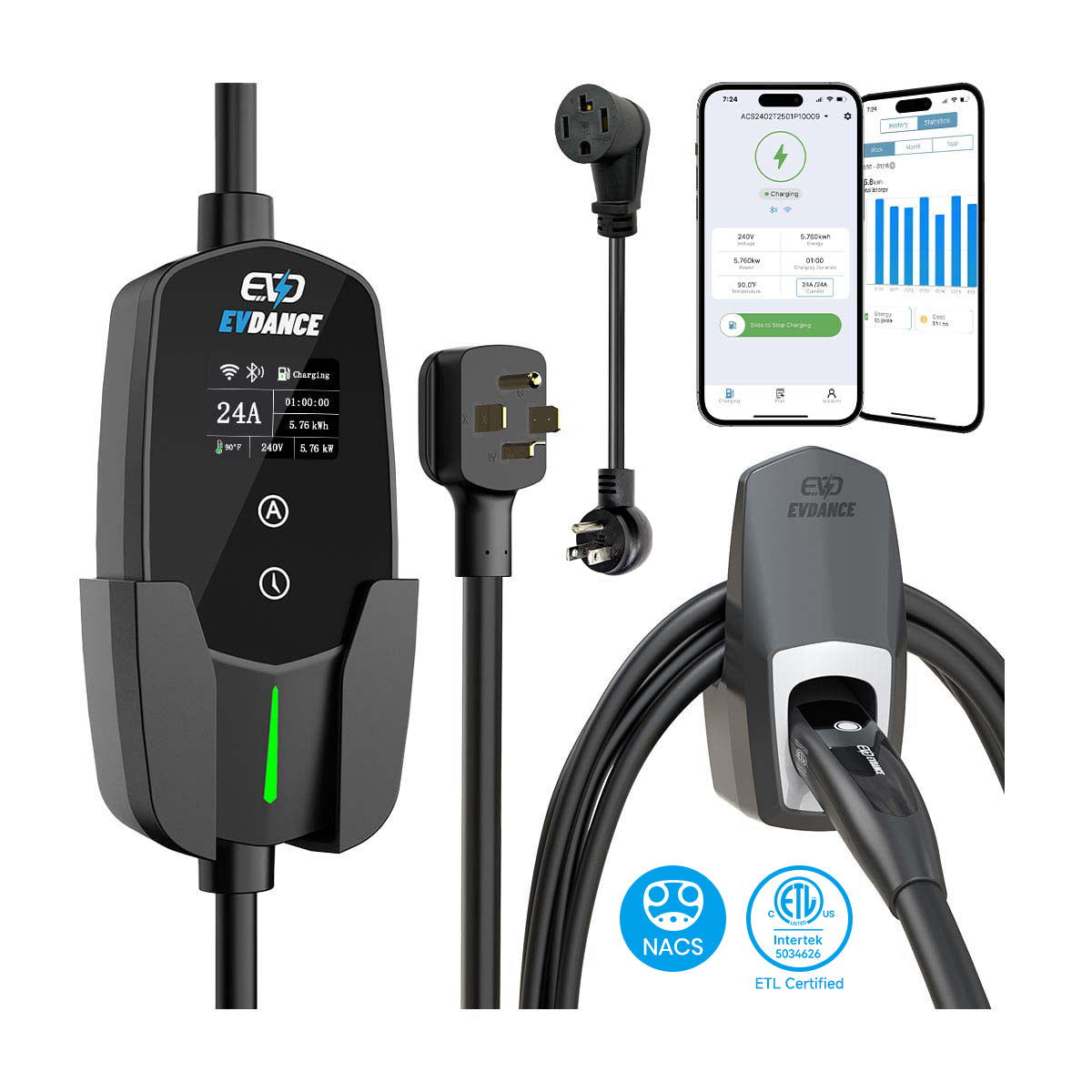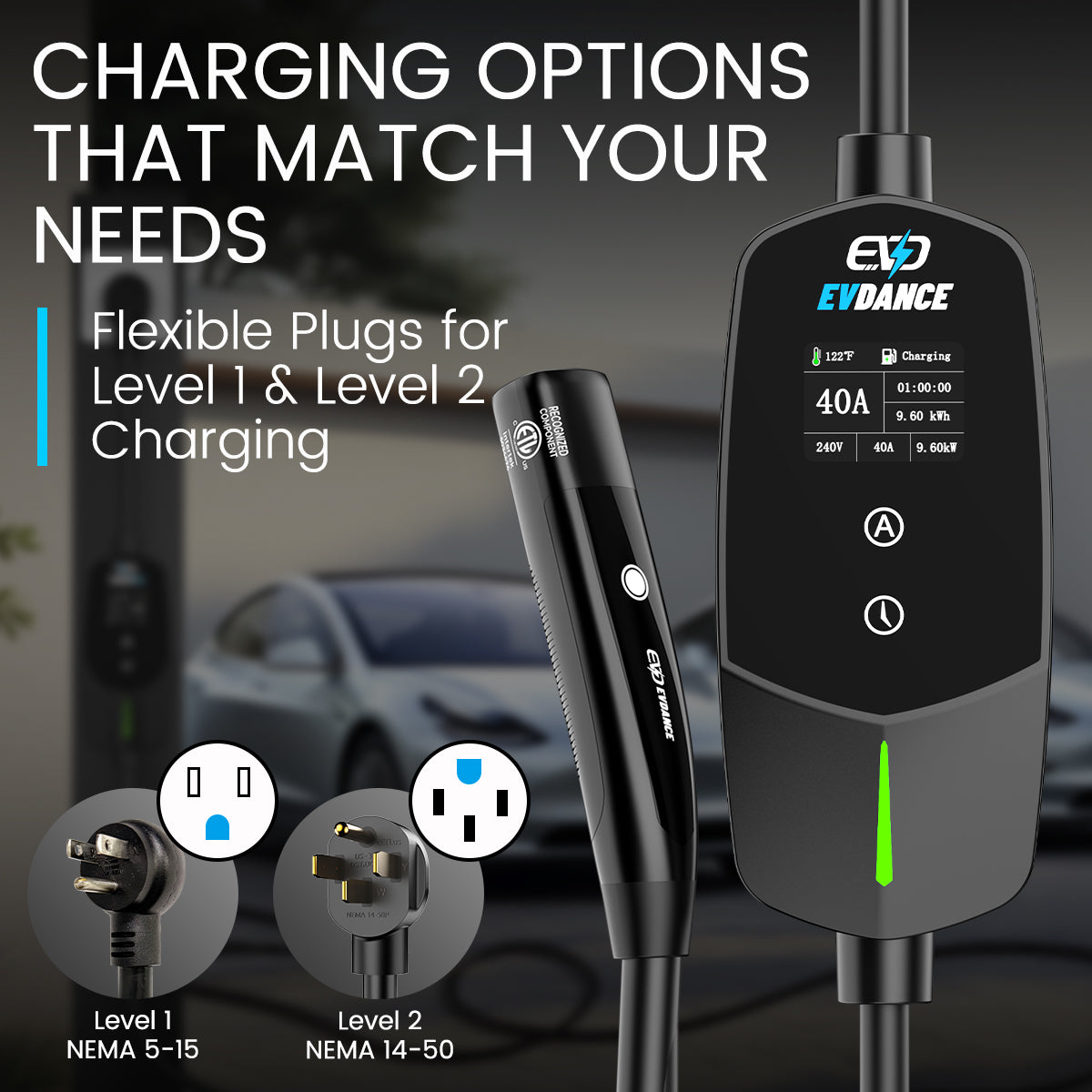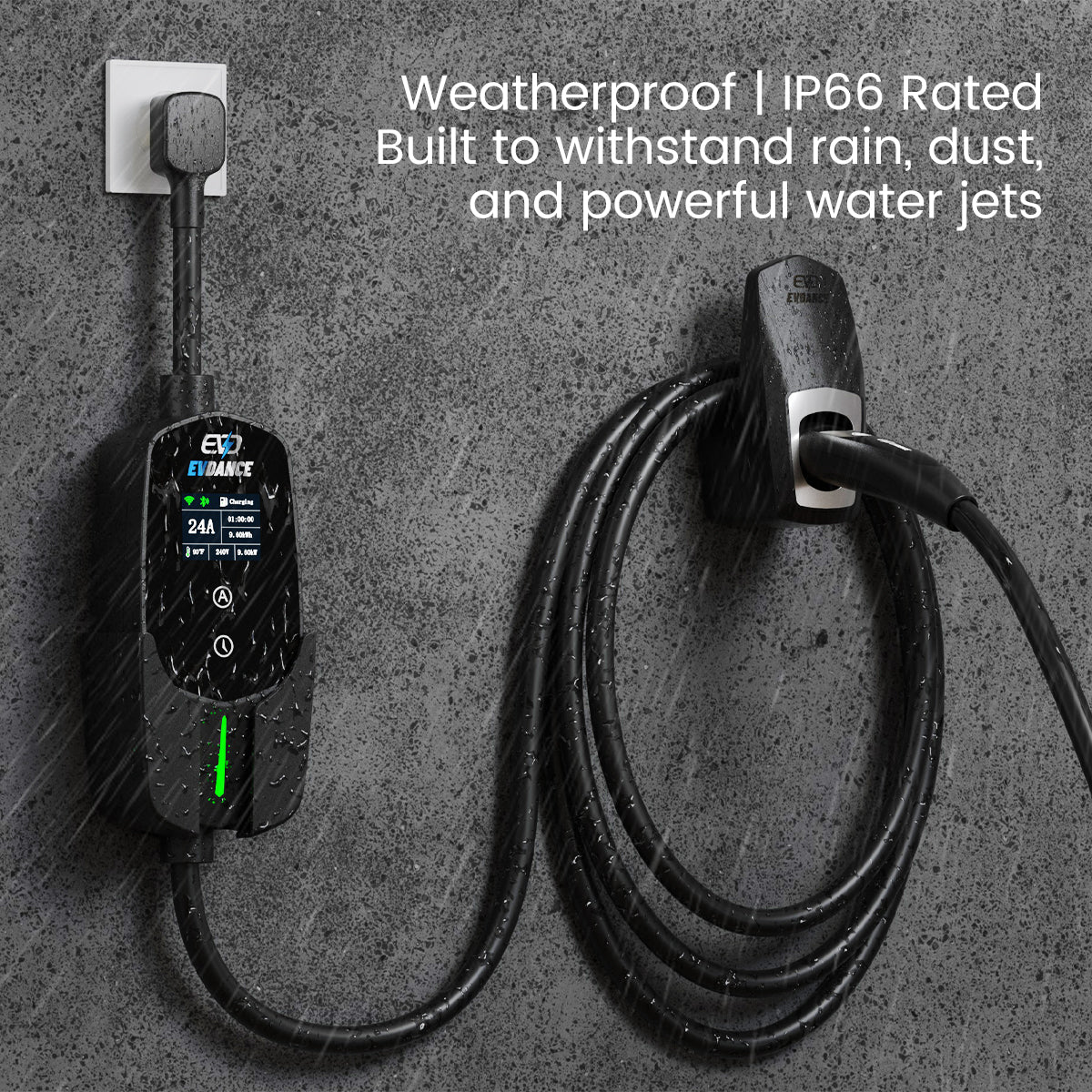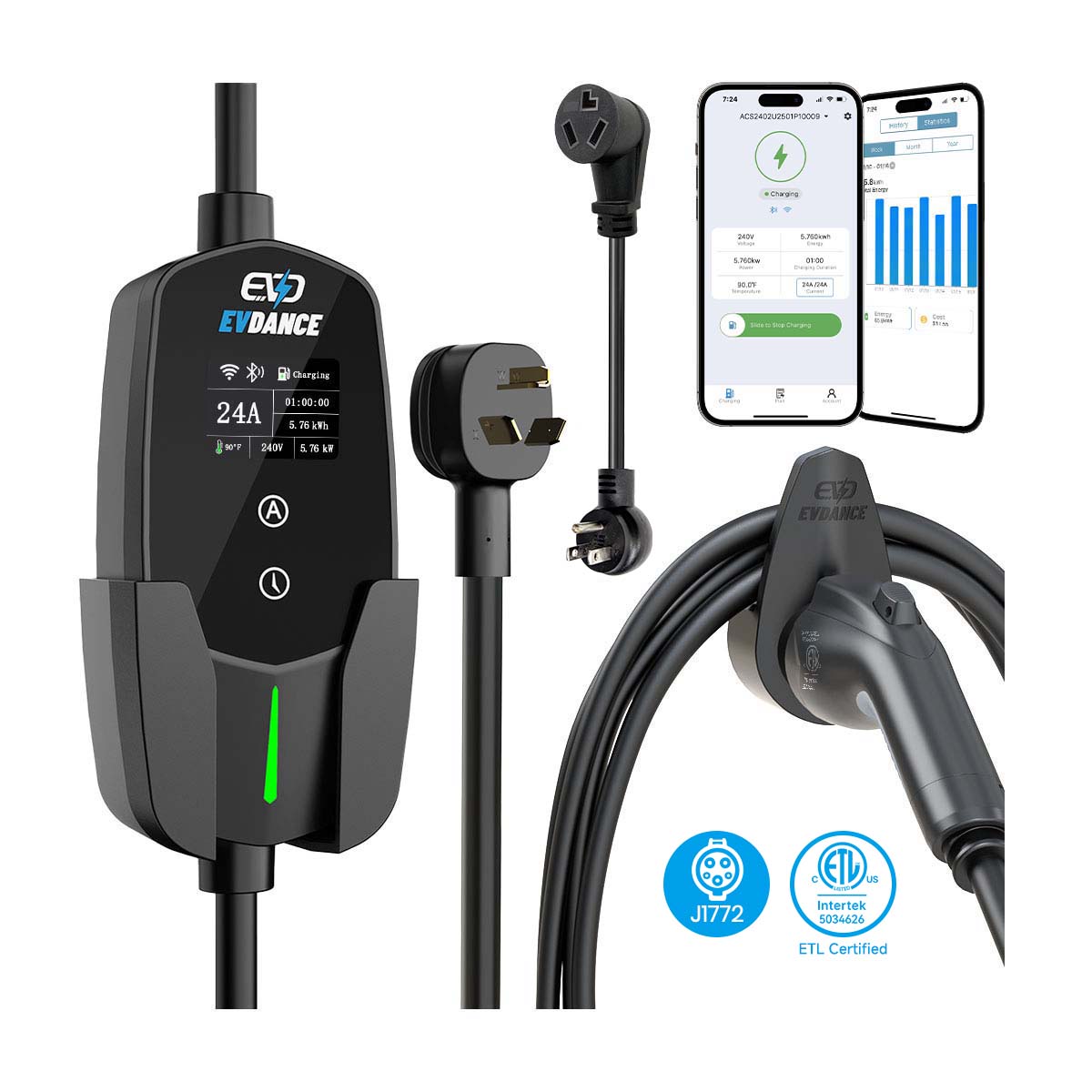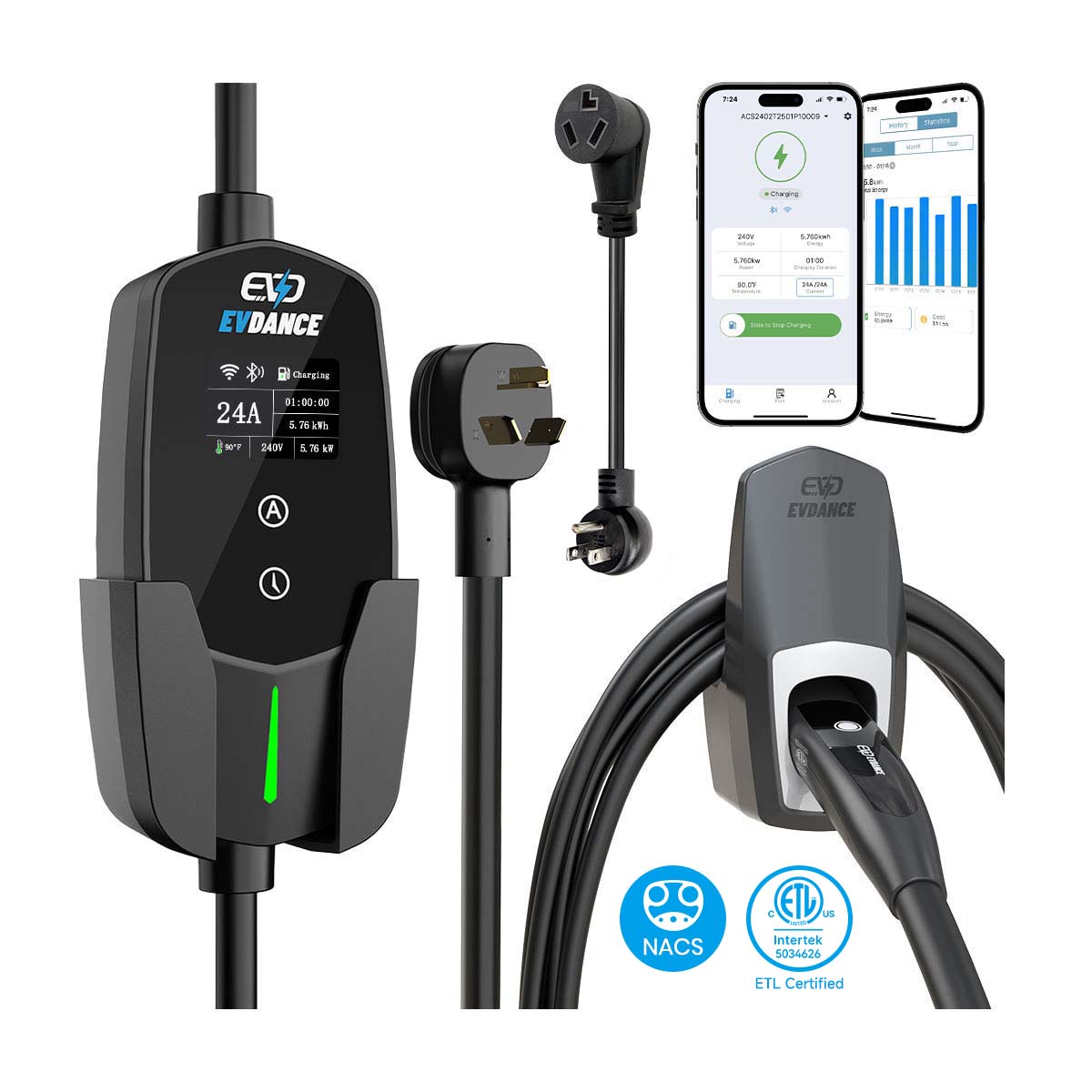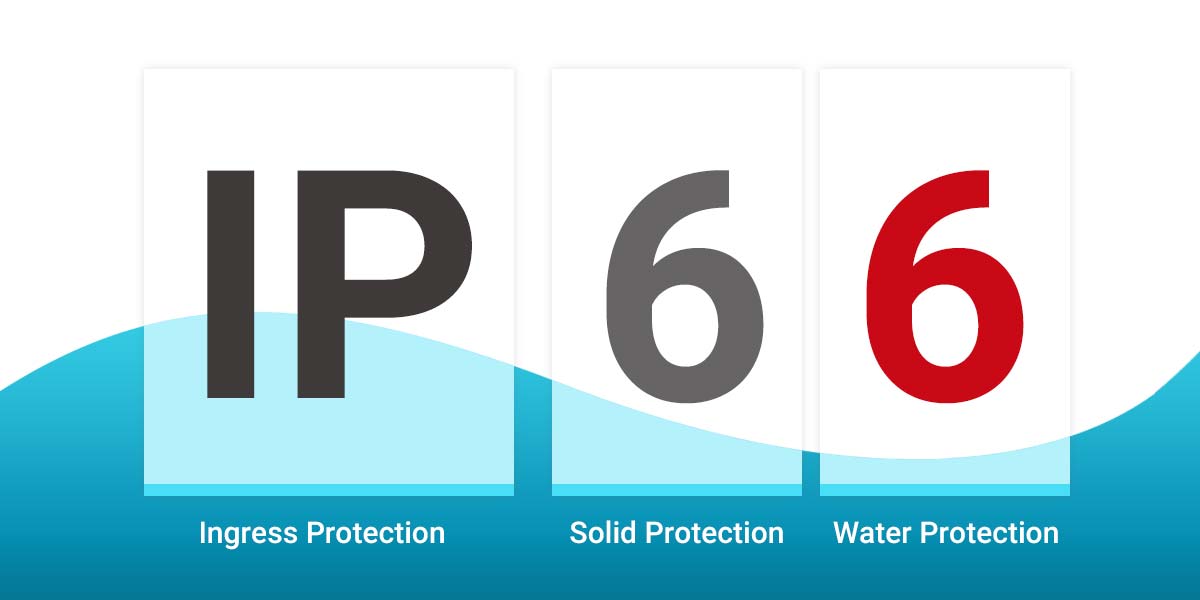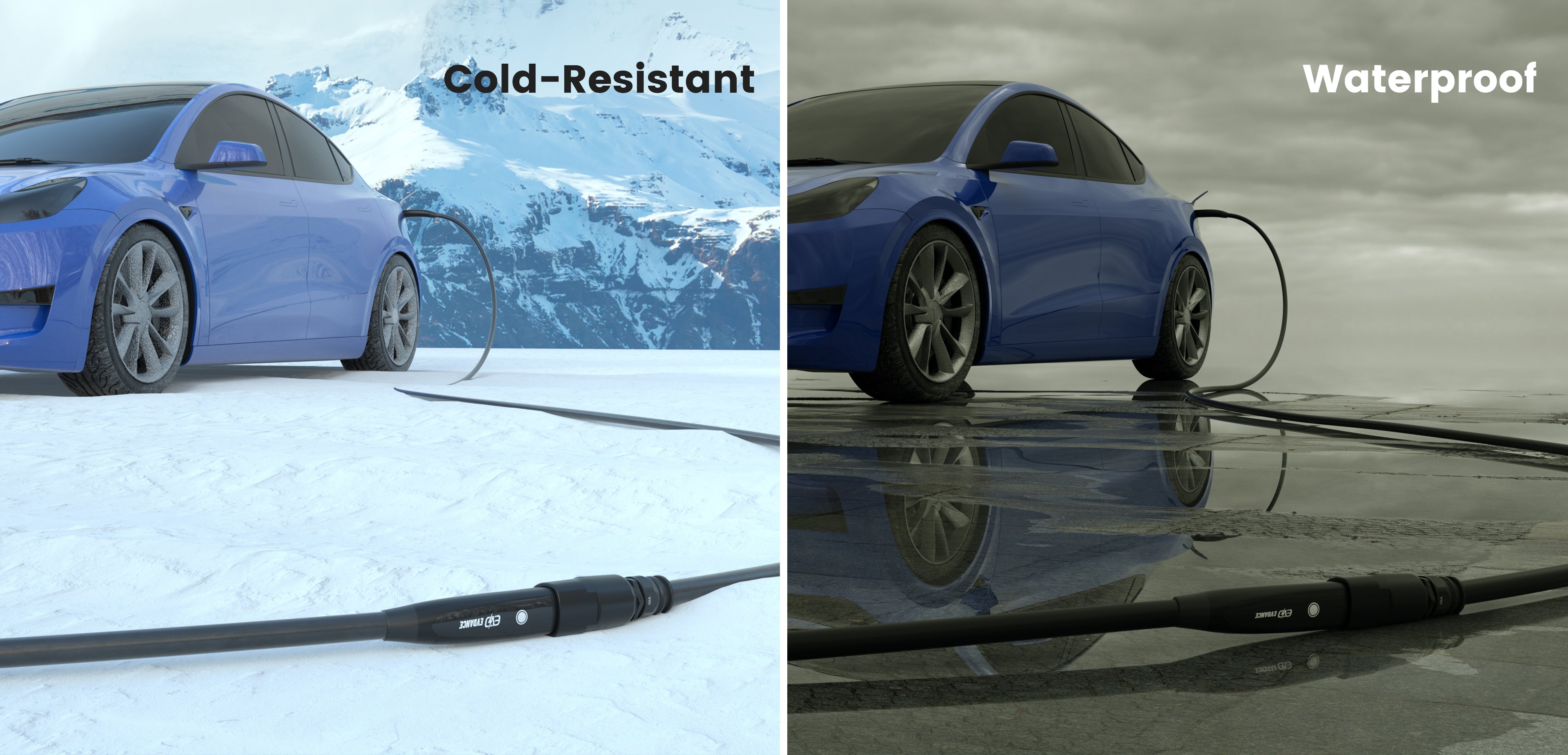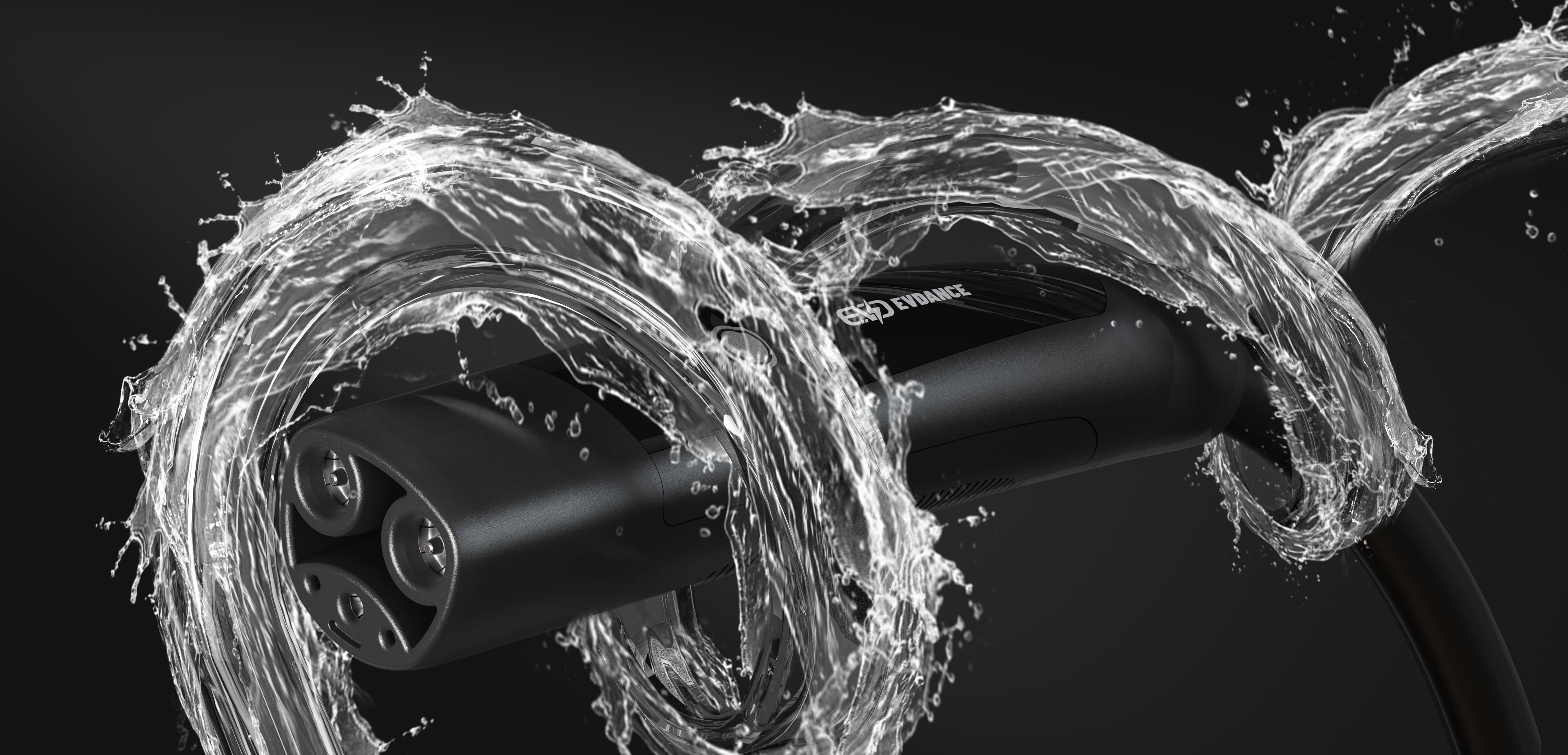Level 2 EV-Ladegerät: Die intelligente Wahl für schnelles, effizientes und zuverlässiges Laden zu Hause
Da Elektrofahrzeuge (EVs) immer häufiger auf Einfahrten, in Garagen und auf Autobahnen zu sehen sind, ist eine zuverlässige, schnelle Ladelösung für zu Hause nicht mehr nur eine Annehmlichkeit – sie ist eine Notwendigkeit. Das Level-2-EV-Ladegerät hat sich für die meisten EV-Besitzer als erste Wahl herausgestellt und bietet im Vergleich zu den langsameren Einstiegsladegeräten der Stufe 1 eine deutliche Verbesserung in Bezug auf Geschwindigkeit, Benutzerfreundlichkeit und langfristige Nutzbarkeit.
Level-2-Ladegeräte werden an einer Standard-240-V-Stromquelle installiert und bieten eine deutlich schnellere Ladeleistung . Je nach Ladekapazität Ihres Fahrzeugs erhöhen sie in der Regel die Reichweite um 40 bis 50 Kilometer pro Ladestunde. Egal, ob Sie täglich pendeln, gelegentlich unterwegs sind oder mehrere Elektrofahrzeuge zu Hause im Blick haben – ein Level-2-Ladegerät sorgt dafür, dass Ihr Elektrofahrzeug bei Bedarf voll geladen und einsatzbereit ist – mit deutlich weniger Wartezeit und mehr Flexibilität.
Im Vergleich zur Nutzung öffentlicher Ladeinfrastruktur bietet ein eigenes Level-2-Ladegerät zu Hause den Fahrern die volle Kontrolle über den Ladevorgang. So können Sie über Nacht, außerhalb der Spitzenzeiten oder direkt vor der Fahrt laden – wann immer es für Sie am bequemsten oder kostengünstigsten ist. Viele der heutigen führenden Level-2-Ladegeräte sind zudem mit WLAN oder Bluetooth ausgestattet. Dies ermöglicht intelligente Funktionen wie App-basierte Planung, Echtzeit-Ladestatus-Updates, Energieverbrauchsverfolgung und die nahtlose Integration in zeitabhängige Tarife von Versorgungsunternehmen, um die monatlichen Stromrechnungen zu senken.
Für Haushalte mit mehr als einem Elektrofahrzeug sind Level-2-Ladegeräte mit intelligentem Lastausgleich oder Dual-Port-Ladefunktion besonders nützlich. Sie bieten skalierbare Lösungen, die mit Ihren Anforderungen wachsen. Egal, ob Sie Ihr Zuhause für die jahrelange Nutzung von Elektrofahrzeugen zukunftssicher machen oder einfach die tägliche Ladegeschwindigkeit und -zuverlässigkeit verbessern möchten – ein Level-2-Ladegerät ist die ideale langfristige Investition.
Warum sollte man zu Hause ein EV-Ladegerät der Stufe 2 installieren?
Obwohl jedes Elektrofahrzeug mit einem Ladekabel der Stufe 1 ausgestattet ist, bietet das Upgrade auf Stufe 2 eine Reihe von Vorteilen:
- Laden Sie Ihr Elektrofahrzeug bis zu 6–10-mal schneller als mit einer Standardsteckdose mit 120 V.
- Kürzere Ladezeiten reduzieren Energieverschwendung und können mit Zeiten mit niedrigeren Stromtarifen abgestimmt werden.
- Planen Sie das Laden, verfolgen Sie die Nutzung und integrieren Sie es über Apps oder Sprachassistenten in Smart-Home-Systeme.
- Ladestationen für Elektrofahrzeuge zu Hause sind eine zunehmend gefragte Annehmlichkeit für Hauskäufer und Mieter gleichermaßen
Hauptfunktionen und Ladefunktionen
Die Wahl des richtigen Level-2-Ladegeräts hängt von den Anforderungen Ihres Fahrzeugs, Ihrem elektrischen System und Ihrem Lebensstil ab. Wichtige zu berücksichtigende Spezifikationen sind:
- 240 V (Standard für Heimladegeräte für Elektrofahrzeuge der Stufe 2)
- Die Modelle reichen von 16 A bis 50 A; mehr Ampere = schnelleres Laden (sofern Ihr Elektrofahrzeug dies unterstützt)
- Bietet normalerweise eine Leistung von 3,3 kW bis 12 kW, was einer Reichweite von ca. 20–40 Meilen pro Stunde entspricht
- NEMA 14-50, 6-50 oder festverdrahtete Optionen, abhängig von Ihrer Konfiguration
- Die meisten verwenden den universellen J1772-Stecker , der mit fast allen Elektrofahrzeugen kompatibel ist (Tesla-Fahrer benötigen einen Adapter).
Bei einigen Ladegeräten handelt es sich um tragbare EV-Ladegeräte der Stufe 2 , die sich perfekt für diejenigen eignen, die an mehreren Standorten laden oder keine feste Installation wünschen.
Best Practices für Installation und Sicherheit
Ein ordnungsgemäß installiertes Level-2-Ladegerät für Elektrofahrzeuge bietet jahrelangen sicheren und zuverlässigen Betrieb. So sorgen Sie für ein sorgenfreies Erlebnis:
- Installieren Sie Ihr Ladegerät immer an einem dedizierten 240-V-Stromkreis mit der richtigen Stromstärke und dem richtigen Unterbrecher.
- Achten Sie auf Ladegeräte mit UL-, ETL- oder Energy Star-Zertifizierung, um Sicherheit und Leistung zu gewährleisten.
- Wählen Sie für die Installation im Freien ein Modell mit wetterfestem Gehäuse (NEMA 3R oder besser).
- Verwenden Sie integrierte Sicherheitsfunktionen und verbundene Apps, um Ladevorgänge zu überwachen und Fehler in Echtzeit zu erkennen.
- Wählen Sie Modelle mit integrierten Holstern und Kabelorganisatoren, um Abnutzung und Stolperfallen zu vermeiden
FAQs
Finden Sie Antworten auf Fragen zu tragbaren Ladegeräten für Elektrofahrzeuge.
Kann ich mein Elektrofahrzeug zu Hause mit einem J1772-Ladegerät aufladen?
Ja, Sie können zu Hause eine Ladestation der Stufe 2 J1772 installieren, um das Laden von Elektrofahrzeugen zu beschleunigen. Ein Elektriker kann die Ladestation einrichten und so eine effizientere Lademöglichkeit als eine normale Haushaltssteckdose bieten.
Welches tragbare Ladegerät mit AC-Eingangsstecker sollte ich wählen?
Wählen Sie auf Grundlage des Steckdosentyps, den Sie am häufigsten verwenden. Normalerweise ist NEMA 5-15p am gebräuchlichsten, aber in Gegenden wie Kalifornien wird auch häufig NEMA 14-30p verwendet.
Gibt es verschiedene Arten von J1772-Anschlüssen oder -Steckern?
Während der J1772-Standard das Gesamtdesign und die Kommunikationsprotokolle festlegt, kann es zu Abweichungen im Steckerdesign kommen. Die grundsätzliche Kompatibilität bleibt jedoch bei Elektrofahrzeugen und Ladestationen, die dem J1772-Standard entsprechen, gleich.
Kann ich zum Laden meines Elektrofahrzeugs mit einem J1772-Anschluss an einer anderen Ladestation einen Adapter verwenden?
Möglicherweise sind Adapter erhältlich, mit denen Sie Ihr Elektrofahrzeug an verschiedene Arten von Ladestationen anschließen können. Kompatibilität und Ladegeschwindigkeit können jedoch variieren. Es ist wichtig sicherzustellen, dass der Adapter für Ihr Elektrofahrzeugmodell und die verwendete Ladestation geeignet ist.
Sind J1772-Ladegeräte mit Schnelllade- oder DC-Schnellladestandards kompatibel?
Da Elektrofahrzeuge (EVs) immer beliebter werden, wird die Entwicklung der Ladeinfrastruktur von entscheidender Bedeutung. In diesem Artikel werden fünf Haupttypen von EV-Ladegeräten vorgestellt: Ladegeräte der Stufe 1 , Ladegeräte der Stufe 2 , tragbare Ladegeräte, Heimladegeräte und DC-Schnellladestationen. Lassen Sie uns die Merkmale und Funktionen der einzelnen Ladegerättypen näher betrachten.
Was ist ein EV-Ladegerät der Stufe 2?
Ein EV-Ladegerät der Stufe 2 ist eine Schnellladelösung, die eine 240-Volt-Steckdose nutzt und so die Ladezeit im Vergleich zu Standard-Ladegeräten der Stufe 1 deutlich verkürzt. Es eignet sich ideal für das Laden von Elektrofahrzeugen zu Hause und an öffentlichen Stationen und bietet 3- bis 10-mal schnellere Ladegeschwindigkeiten.
Wie schnell lädt ein Ladegerät der Stufe 2 mein Elektrofahrzeug auf?
Ein Ladegerät der Stufe 2 bietet je nach Fahrzeug und Stromstärke des Ladegeräts in der Regel eine Reichweite von 40 bis 48 Kilometern pro Ladestunde. Damit eignet es sich ideal für das Aufladen von Elektrofahrzeugen zu Hause über Nacht oder zum schnellen Aufladen tagsüber.
Benötige ich einen Fachmann, um ein Ladegerät der Stufe 2 zu installieren?
Es wird dringend empfohlen, Ihr Level 2-Heimladegerät für Elektrofahrzeuge von einem zugelassenen Elektriker installieren zu lassen, um eine ordnungsgemäße Verkabelung, Erdung und Einhaltung der örtlichen Elektrovorschriften sicherzustellen. Eine unsachgemäße Installation kann ein Sicherheitsrisiko darstellen.
Was ist der Unterschied zwischen einem EV-Ladegerät der Stufe 1 und der Stufe 2?
Ladegeräte der Stufe 1 verwenden eine Standardsteckdose mit 120 V und ermöglichen langsames Laden (ca. 5–8 km/h), während Ladegeräte der Stufe 2 mit 240 V deutlich schnelleres Laden (bis zu 48 km/h) ermöglichen. Stufe 2 eignet sich am besten für den täglichen Gebrauch und das Laden von Elektrofahrzeugen zu Hause.
Sind Ladegeräte der Stufe 2 mit allen Elektrofahrzeugen kompatibel?
Ja, die meisten Ladegeräte der Stufe 2 verwenden den universellen J1772-Anschluss, der mit allen Elektrofahrzeugen in Nordamerika kompatibel ist, einschließlich Tesla (mit Adapter), Nissan Leaf, Chevy Bolt, Ford Mustang Mach-E und mehr.
Wie viel kostet das Aufladen eines Elektrofahrzeugs mit einem Ladegerät der Stufe 2?
Die Ladekosten variieren je nach den lokalen Strompreisen, aber das Laden zu Hause mit einem Level-2-Ladegerät ist in der Regel deutlich günstiger als an öffentlichen Ladegeräten. Im Durchschnitt kostet das Aufladen einer vollen Batterie zu Hause zwischen 5 und 15 US-Dollar.
Kann ich ein tragbares EV-Ladegerät der Stufe 2 verwenden?
Ja, es sind tragbare Ladegeräte der Stufe 2 erhältlich. Sie sind ideal für Fahrer, die unterwegs flexibel sein müssen. Sie werden an eine 240-V-Steckdose (z. B. NEMA 14-50) angeschlossen und bieten die gleiche Schnellladeleistung wie ein stationäres Ladegerät.
Auf welche Funktionen sollte ich bei einem EV-Ladegerät der Stufe 2 achten?
Zu den wichtigsten zu berücksichtigenden Merkmalen gehören Ladegeschwindigkeit (Stromstärke), Steckertyp (NEMA 14-50 oder fest verdrahtet), intelligente Konnektivität (WLAN oder Bluetooth), Wetterbeständigkeit, Kabellänge und Sicherheitszertifizierungen wie UL oder Energy Star.
Wie pflege ich mein Ladegerät der Stufe 2 für den Langzeitgebrauch?
Um die Langlebigkeit zu gewährleisten, installieren Sie Ihr Level-2-Ladegerät für Elektrofahrzeuge an einem geschützten oder wettergeschützten Ort, überprüfen Sie die Kabel regelmäßig auf Verschleiß, halten Sie den Stecker sauber und befolgen Sie die Wartungsrichtlinien des Herstellers. Viele Ladegeräte sind für eine Lebensdauer von mehr als 10 Jahren ausgelegt.
Ihre Fragen nicht gefunden?
Weitere Antworten finden Sie in unserer QA-Fragendatenbank .




